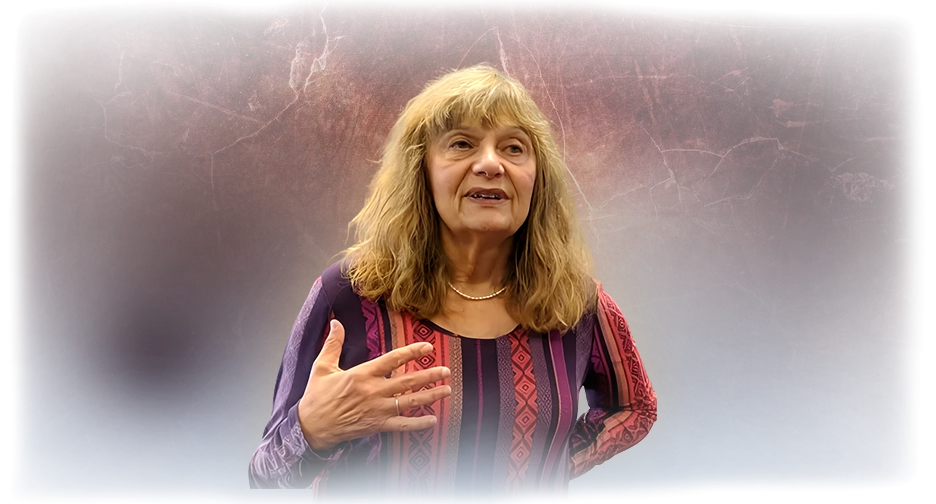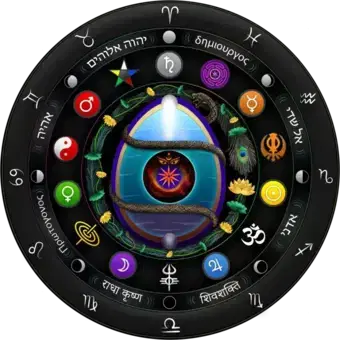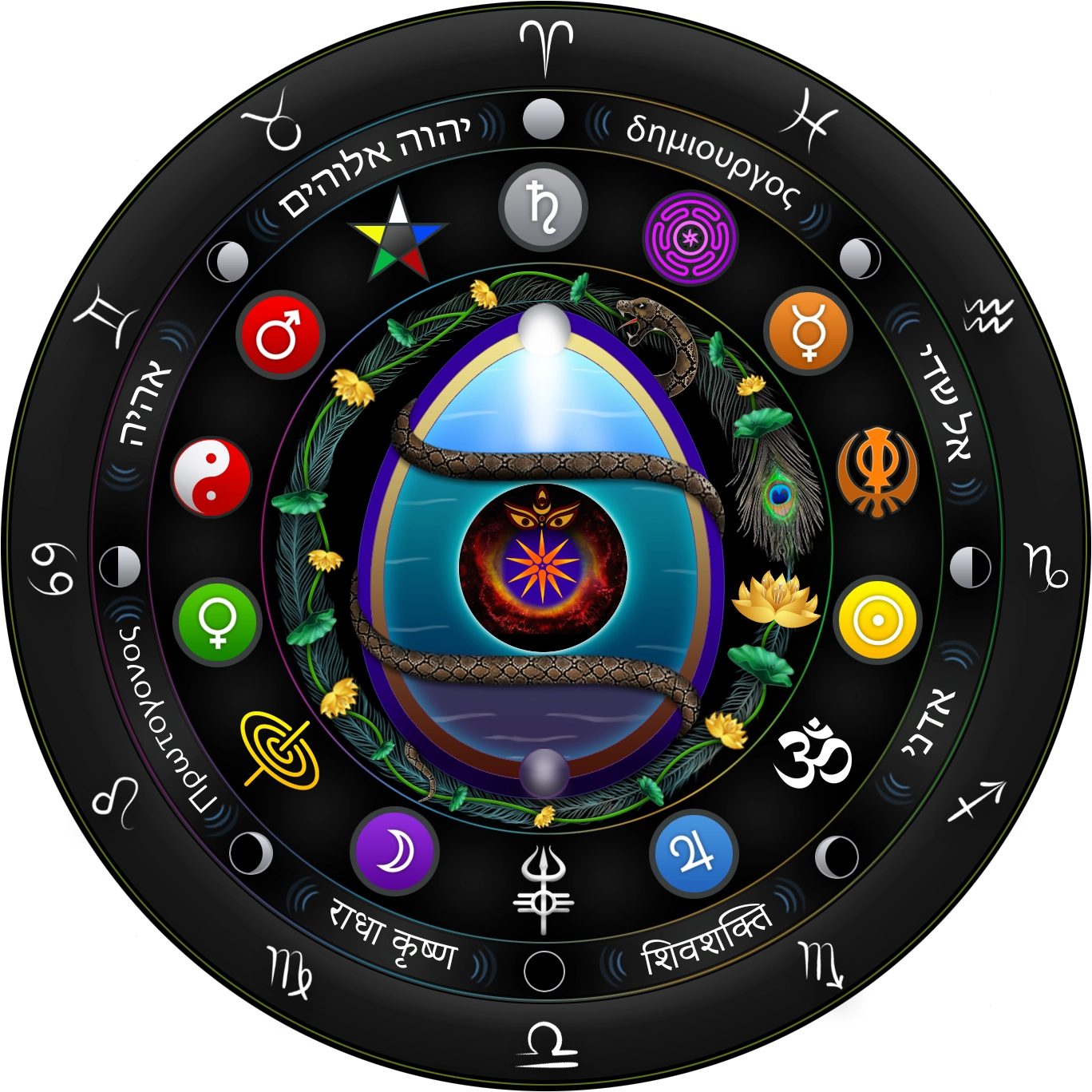
SCHOOL OF OUR DIVINE
INFINITE BEING
Polytheistic Monism - Divine Theurgy - Oracle to the Gods
Influences
Philosophers
Gregory Shaw
Timothy Desmond
Shambhavi Chopra
Plato
Iamblichus
Aristotle
Plotinus
Georg Wilhelm Friedrich Hegel
Aldous Huxley
Alfred North Whitehead
Osho
Algis Uždavinys
Laozi
Abhinavagupta
Bernardo Kastrup
Proclus
Porphyry
Psychologists
Carl Jung
Roberto Assagioli
Will Parfitt
Occultists
Samuel Liddell MacGregor Mathers
Aleister Crowley
Kenneth Grant
William Walker Atkinson
Israel Regardie
Edward Waite
Paul Foster Case
Physicists
Wolfgang Pauli
Leonard Susskind
Roger Penrose
Henry Pierce Stapp
Albert Einstein
Niels Bohr
Werner Karl Heisenberg
Gerard 't Hooft
Hugh Everet
Erwin Schrödinger
John von Neumann
Stephen Meyer
Donald Hoffman
Spiritual Teachers
Swami Vivekananda
Ramakrishna
Jesus Christ
The Buddha
A. C. Bhaktivedanta Swami Prabhupada
Astrologers
Richard Tarnas
Keiron Le Grice
Chris Brennan
Liz Greene
Demetra George
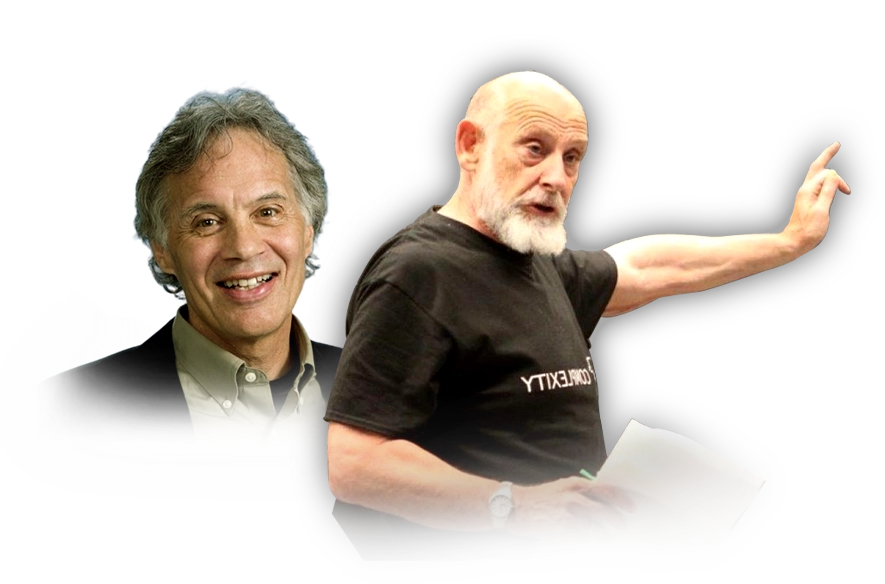
Introduction:

The following is a list of philosophers, physicists, psychologists, occultists, gurus, astrologers and teachers of historical legend. All of them have written works and teachings that greatly influenced the theories and practices of our school. We make no claim to their belief or agreement with our conclusions as they are all academics within their own disciplines for their own purposes. We wanted to give you an opportunity to know who they are. This is not a complete list, but are those whose works have contributed greatly to the final analysis we make available to the seeker.
Gregory Shaw
Spiritual Teacher
Gregory Shaw is an esteemed scholar and authority in the fields of ancient philosophy, religion, and spirituality. His extensive research and insightful analyses have shed light on various aspects of ancient wisdom traditions, particularly Neoplatonism and Hermeticism. Shaw's interdisciplinary approach, drawing from philosophy, religious studies, and history, has contributed significantly to our understanding of the profound philosophical currents that shaped the ancient world.
Educated at the University of Toronto and McMaster University, Shaw's academic journey has been marked by a deep engagement with the philosophical and spiritual traditions of antiquity. His scholarship encompasses a wide range of topics, including theurgy, mysticism, and the intersection of philosophy and religion in late antiquity.
Central to Shaw's work is the exploration of the spiritual dimensions of Neoplatonism and Hermeticism, two influential currents of thought that emerged in the Hellenistic and Roman eras. Through his writings, such as "Theurgy and the Soul" and "Theurgy and the Ancient Egyptian Mysteries," Shaw elucidates the transformative power of ancient spiritual practices and their relevance to contemporary seekers of wisdom.
Shaw's profound insights into the philosophical underpinnings of ancient spirituality continue to inspire scholars and spiritual practitioners alike. His meticulous research and deep reverence for the wisdom of the ancients mark him as a leading authority in the field of ancient philosophy and religion, whose work continues to enrich our understanding of the human quest for meaning and transcendence.

Timothy Desmond
Philosopher
Timothy Owen Desmond, who also goes by Tod, decided to dedicate his life to studying philosophy during his first semester at Boston College, where he earned a B.A. with a major in Philosophy and Political Science in 1993. For the next thirteen years he studied and wrote about philosophical and cosmological topics while working on a tree farm in Southern Maryland, and then while working at various other jobs in Boston and Washington, D.C. In 2006 he went back to school to earn a Master of Liberal Studies degree from Georgetown University. After that he earned an M.A. in Political Science with a concentration in Alternative Futures Studies from the University of Hawai’i in Manoa, and, finally, a Ph.D. in Philosophy and Religion with a concentration in Philosophy, Cosmology, and Consciousness from the California Institute of Integral Studies. He especially enjoys writing about the parallels between psychology and physics.
Timothy Owen Desmond, who also goes by Tod, began studying philosophy during his freshman year at Boston College. He graduated in 1993 with a bachelor's degree in philosophy and political science. For the next 13 years, he studied and wrote about philosophy and cosmology while working on a tree farm.
He continued his studies while working in various jobs in Boston and Washington. In 2006, he went back to school and received a master's degree in political science with a speciality in alternative futures studies at the University of Hawaii in Manoa. He then went on to receive a doctorate in philosophy and religion with a focus on philosophy, cosmology, and consciousness from the California institute of integral studies. He enjoys writing about psychology and physics.
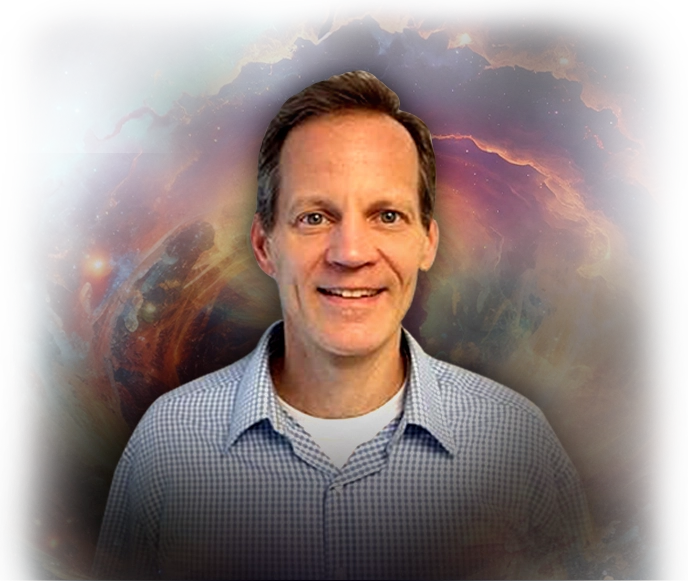
Shambhavi Chopra
Spiritual Teacher
Spiritual Teacher is a visionary spiritual teacher and author renowned for her profound insights into the ancient traditions of Vedic wisdom and Tantric spirituality. A dedicated practitioner and scholar, Shambhavi has spent decades immersing herself in the sacred teachings of India, bringing timeless knowledge to contemporary audiences in a relatable and transformative manner.
Her journey into spirituality began early in life, inspired by the rich cultural and philosophical heritage of India. Through extensive study and practice, she has delved into the realms of mantra, yoga, and meditation, alongside the intricate philosophies of Advaita Vedanta and Tantra. Shambhavi has trained with esteemed masters and yogis, shaping her path as both a seeker and a guide.
Shambhavi's works, including "Yogini: Unfolding the Goddess Within," serve as a bridge between ancient traditions and modern spiritual seekers, offering practical insights for personal growth and self-realization. Her teachings emphasize the sacred feminine, awakening divine energy within individuals, and fostering harmony with the cosmos.
A revered voice in the global spiritual community, Shambhavi Chopra continues to inspire individuals worldwide through her books, workshops, and retreats. Her life's mission is to awaken the inner light within each being, illuminating the path of self-discovery and universal connection.

Plato
Philosopher
Plato (c. 428/427 or 424/423–348/347 BC), an iconic figure in the history of Western philosophy, embodies the quintessence of ancient Greek intellectual thought. Born into an aristocratic family in Athens during the golden age of classical Greece, Plato's life unfolded against the backdrop of profound political upheaval and intellectual ferment. His enduring influence on philosophy, politics, and education reverberates through the centuries, shaping the course of Western civilization.
As a disciple of Socrates, Plato imbibed the spirit of dialectical inquiry and philosophical dialogue that would become hallmarks of his own philosophical method. Following Socrates' execution in 399 BC, Plato embarked on a lifelong quest to explore the nature of reality, knowledge, and the ideal society. His dialogues, written in the form of conversations between Socrates and various interlocutors, serve as timeless monuments to his intellectual prowess and philosophical insights.
Central to Plato's philosophy is the theory of Forms, which posits the existence of transcendent, eternal entities that serve as the true reality behind the world of appearances. Through works such as "The Republic," "The Symposium," and "The Phaedo," Plato expounded upon a wide array of philosophical themes, including justice, love, the immortality of the soul, and the nature of the good. His profound influence on subsequent generations of philosophers, from Aristotle to the present day, underscores the enduring relevance of his ideas and the enduring legacy of his philosophical legacy.
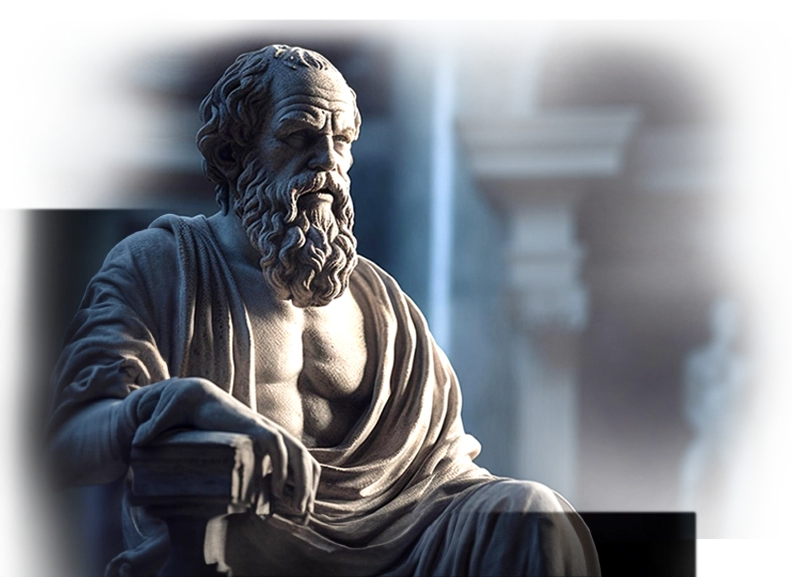
Iamblichus
Philosopher
Iamblichus (circa 245-325 AD) emerges from the annals of antiquity as a pivotal figure in the realm of late ancient philosophy. Born in Chalcis, Coele-Syria (modern-day Syria), Iamblichus navigated a transformative period where the currents of Hellenistic thought intermingled with burgeoning Christian theology. His life and intellectual journey epitomize the rich tapestry of philosophical inquiry that characterized the era.
Under the guidance of Porphyry, a distinguished disciple of Plotinus, Iamblichus ascended to prominence within the Neoplatonic tradition. His philosophical pursuits traversed the realms of metaphysics, mysticism, and theurgy, seeking to forge a synthesis between Platonic doctrines and religious practices. Central to his oeuvre stands "De Mysteriis" (On the Mysteries), a profound exploration of the divine and the esoteric, illuminating the path to understanding the nature of reality and the soul's ascent to the divine realm.
Iamblichus' legacy transcends the boundaries of time, influencing generations of philosophers and mystics alike. Though the details of his life remain shrouded in mystery, his enduring contributions to philosophical discourse continue to reverberate through the corridors of intellectual history. In an age marked by profound inquiry and spiritual questing, Iamblichus' insights illuminate the path toward a deeper comprehension of the cosmos and the human spirit, leaving an indelible imprint on the fabric of philosophy.
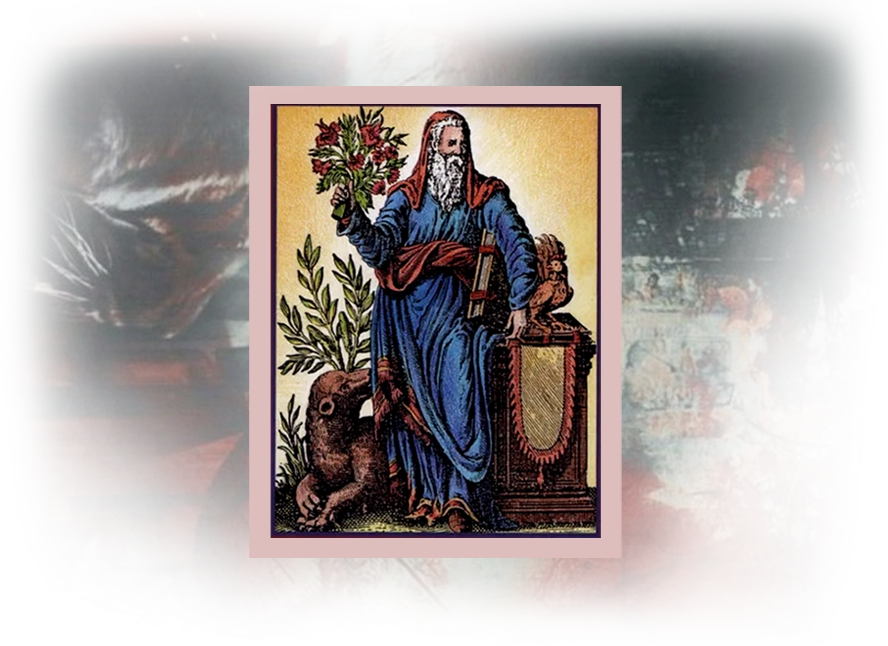
Aristotle
Philosopher
Aristotle (384–322 BC), a towering figure in the history of Western thought, stands as one of the most influential philosophers of antiquity. Born in Stagira, a Greek city in the Macedonian region, Aristotle's life unfolded during a period of cultural flourishing and intellectual inquiry. His comprehensive contributions to philosophy, science, and ethics laid the groundwork for much of Western intellectual tradition, shaping the contours of scholarly discourse for centuries to come.
As a student of Plato's Academy in Athens, Aristotle imbibed the spirit of philosophical inquiry and rigorous logical analysis. However, his philosophical trajectory diverged from Plato's idealism, leading him to develop a distinct philosophical system grounded in empirical observation and systematic reasoning. Aristotle's encyclopedic works encompass a vast array of disciplines, including metaphysics, logic, ethics, politics, rhetoric, biology, and physics.
At the heart of Aristotle's philosophy lies his commitment to understanding the natural world through empirical investigation and logical deduction. His writings, including "Metaphysics," "Nicomachean Ethics," and "Politics," explore fundamental questions about the nature of existence, the pursuit of happiness, and the organization of society. Aristotle's enduring influence extends far beyond the realm of philosophy, permeating disciplines as diverse as biology, psychology, and political science, making him a towering figure whose intellectual legacy continues to shape our understanding of the world.
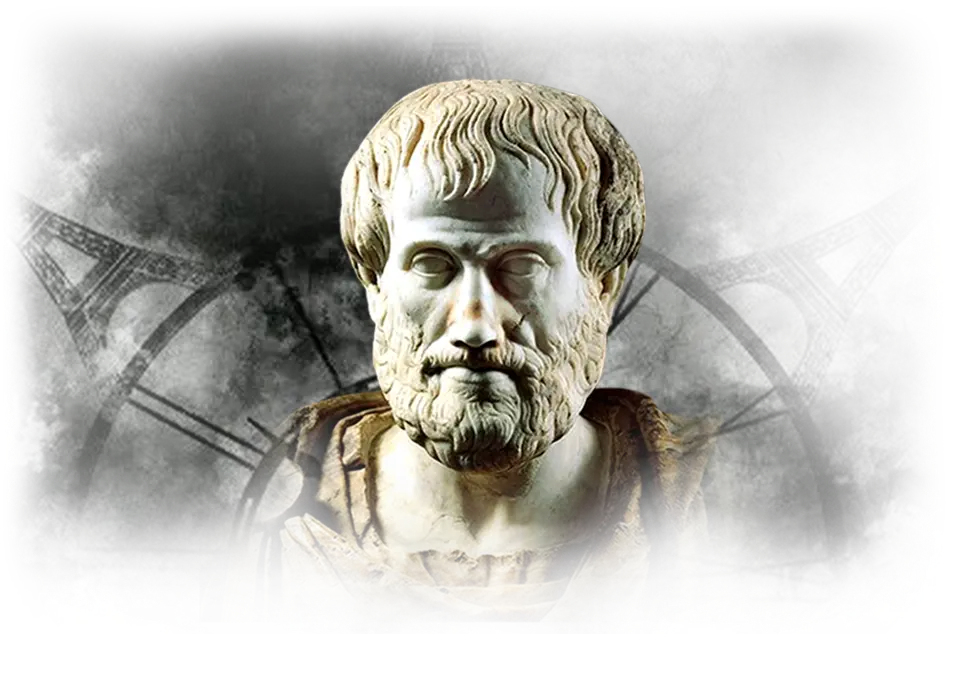
Plotinus
Philosopher
Plotinus (c. 204–270 AD), a luminary of late ancient philosophy, occupies a seminal position in the development of Neoplatonism. Born in Egypt during the tumultuous era of the Roman Empire, Plotinus emerged as a preeminent figure in the intellectual landscape of his time, reshaping the contours of Platonic thought and laying the foundations for a new philosophical tradition
Drawing inspiration from Plato's dialogues and the teachings of earlier philosophers such as Plato and Aristotle, Plotinus embarked on a philosophical quest to unravel the mysteries of existence and the nature of the divine. His magnum opus, the "Enneads," comprises a series of treatises expounding upon his metaphysical system, which centers on the concepts of the One, the Intellect, and the Soul. Through his writings, Plotinus sought to illuminate the path to spiritual ascent and union with the divine.
At the heart of Plotinus' philosophy lies the notion of the One, the ultimate source and principle of all reality. From the One emanates the Intellect, the realm of pure thought and divine intelligibility, which, in turn, gives rise to the Soul and the material world. Plotinus' profound insights into the nature of reality and the human condition continue to inspire philosophers, mystics, and seekers of wisdom across cultures and epochs, establishing him as a seminal figure in the history of philosophy.
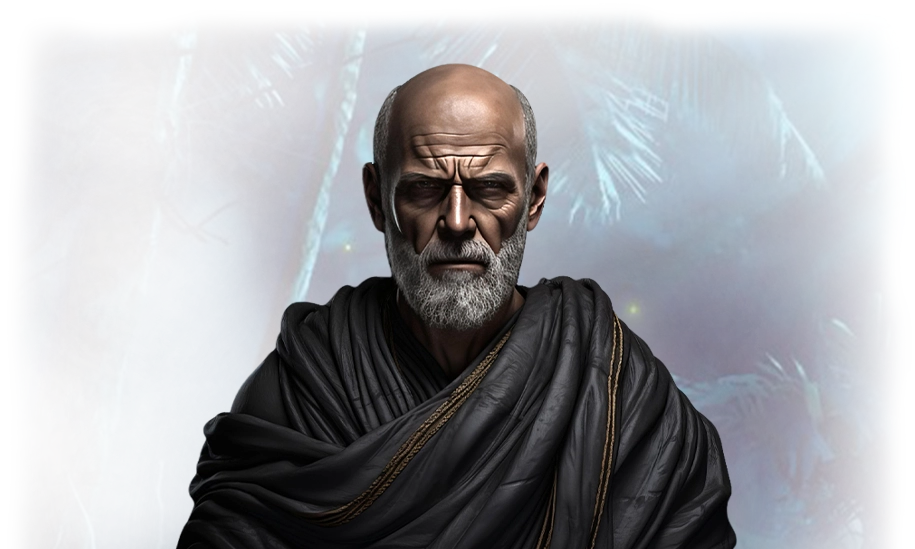
Georg Wilhelm Friedrich Hegel
Philosopher
Georg Wilhelm Friedrich Hegel (1770–1831) stands as one of the most influential philosophers of the modern era, renowned for his ambitious system of philosophical thought known as Hegelianism. Born in Stuttgart, Germany, against the backdrop of the Enlightenment and the tumultuous era of the French Revolution, Hegel's life and work epitomize the intellectual ferment and cultural upheaval that characterized the early 19th century.
Deeply influenced by the idealism of Immanuel Kant and the dialectical method of G. W. F. Hegel, Hegel sought to develop a comprehensive philosophical system that would reconcile the contradictions of thought and history. His magnum opus, "The Phenomenology of Spirit," "The Science of Logic," and "The Philosophy of Right," among others, laid the groundwork for his dialectical method, which posits that history and human consciousness progress through a series of contradictions and resolutions toward an ultimate synthesis or Absolute Knowledge.
Central to Hegel's philosophy is the concept of the Absolute, an all-encompassing reality that unfolds through the dynamic interplay of thesis, antithesis, and synthesis. Hegel's dialectical approach to history and culture, encapsulated in his famous dictum, "The Owl of Minerva spreads its wings only with the falling of the dusk," remains a cornerstone of his philosophical legacy. Despite his controversial and often challenging ideas, Hegel's profound insights into the nature of reality, freedom, and human agency continue to inspire scholars and thinkers across disciplines, cementing his status as one of the towering figures in the history of philosophy.
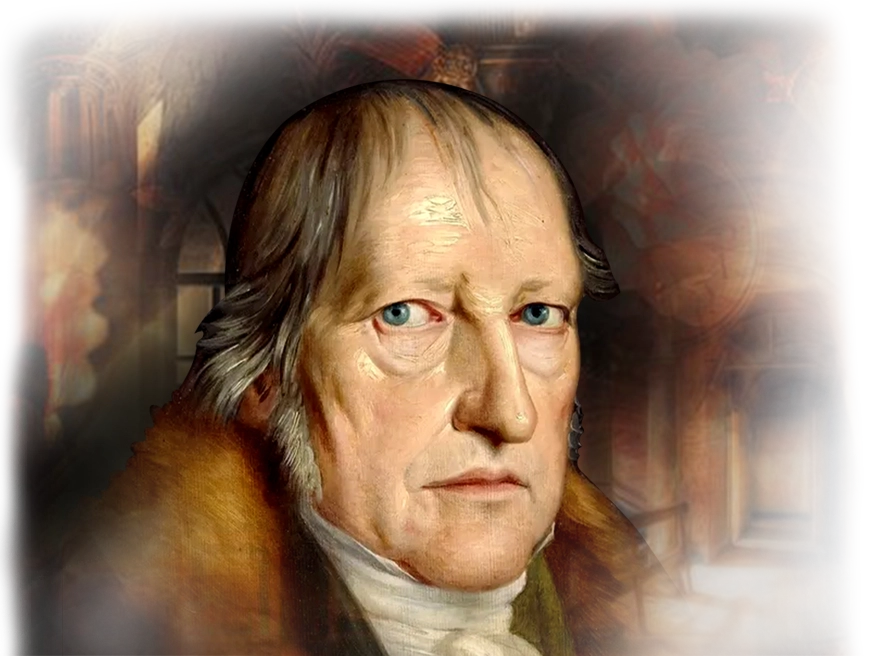
Alfred North Whitehead
Philosopher
Alfred North Whitehead (1861–1947) stands as one of the preeminent philosophers and mathematicians of the 20th century, renowned for his groundbreaking contributions to logic, metaphysics, and the philosophy of science. Born in Ramsgate, England, Whitehead's life unfolded during a period of profound intellectual ferment and scientific advancement, as the world grappled with the challenges of modernity and the dawn of the atomic age.
Educated at Trinity College, Cambridge, and later serving as a professor at both Cambridge and Harvard University, Whitehead's intellectual journey traversed the realms of mathematics, physics, and philosophy. His collaboration with Bertrand Russell on the monumental work "Principia Mathematica" laid the foundation for modern symbolic logic, revolutionizing our understanding of mathematics and logic.
Central to Whitehead's philosophical system is the concept of process philosophy, which posits that reality is fundamentally dynamic and relational. In works such as "Process and Reality" and "Science and the Modern World," Whitehead elaborated upon his vision of the universe as a network of interrelated processes, wherein every entity, from subatomic particles to galaxies, is in constant flux and interaction.
Whitehead's holistic approach to philosophy, encompassing both the natural and human sciences, has had a profound influence on a wide range of fields, from physics and biology to theology and education. His emphasis on the interconnectedness of all things and the importance of relationships and creativity continues to resonate with scholars and thinkers seeking to understand the complex dynamics of the universe and the human experience. Through his visionary insights and rigorous scholarship, Alfred North Whitehead remains a towering figure in the history of ideas, whose legacy continues to inspire and provoke new avenues of inquiry in the quest for understanding and meaning.
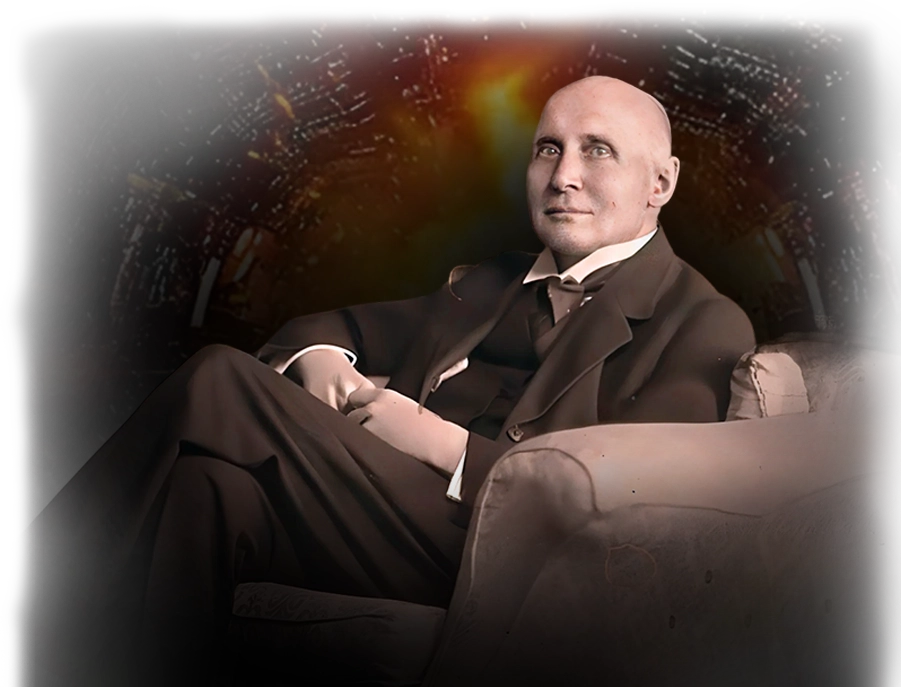
Algis Uždavinys
Philosopher
Algis Uždavinys (1962–2010) was a distinguished philosopher, scholar, and translator, celebrated for his profound contributions to the study of Neoplatonism, Hermeticism, and ancient philosophy. Born in Lithuania, Uždavinys' life and work exemplify a deep engagement with the wisdom traditions of the ancient world, drawing upon the rich tapestry of Greek, Egyptian, and Islamic thought.
Educated at Vilnius University and later pursuing advanced studies in philosophy and classics, Uždavinys' intellectual journey led him to explore the interconnectedness of philosophy, spirituality, and mysticism. His translations and interpretations of ancient texts, including works by Plotinus, Proclus, and Ibn 'Arabi, shed light on the perennial wisdom of the ancients and its relevance to contemporary life.
Central to Uždavinys' scholarship is the notion of philosophia perennis, or perennial philosophy, which holds that there exists a universal wisdom that underlies all the world's spiritual and philosophical traditions. Through his writings, such as "Philosophy as a Rite of Rebirth" and "The Golden Chain," Uždavinys invites readers to embark on a journey of self-discovery and spiritual awakening, drawing upon the insights of the ancients to illuminate the path toward wisdom and enlightenment.
Uždavinys' profound insights into the nature of reality, the human soul, and the divine continue to inspire scholars and seekers of wisdom around the world. His unwavering commitment to the pursuit of truth and his deep reverence for the wisdom of the ages mark him as a beacon of light in an age of uncertainty and spiritual seeking. Through his scholarship and his life's work, Algis Uždavinys leaves behind a legacy of wisdom and inspiration that continues to resonate with all who seek to understand the mysteries of existence.
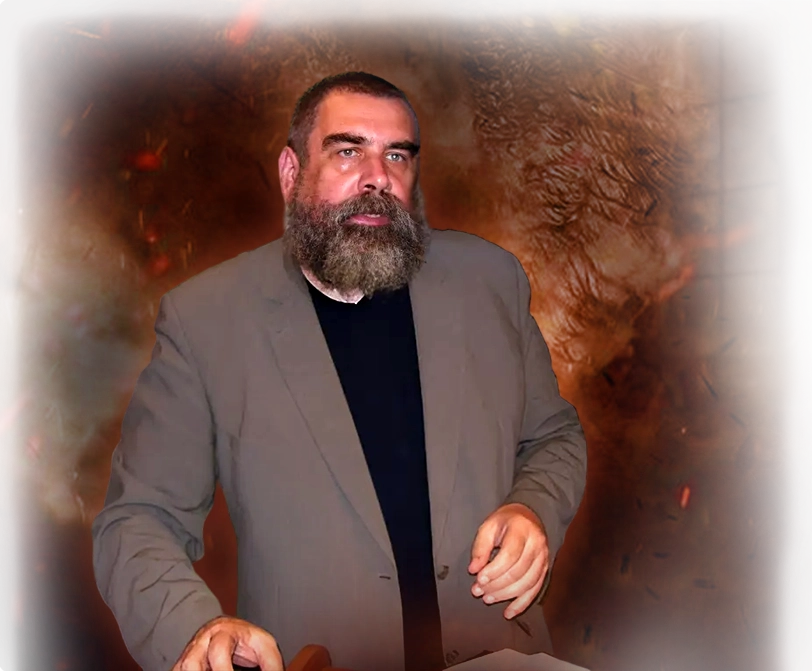
Aldous Huxley
Philosopher
Aldous Huxley (1894–1963) stands as one of the most influential writers and thinkers of the 20th century, renowned for his visionary novels, essays, and lectures that explore the intersection of science, spirituality, and human nature. Born into an illustrious family in Surrey, England, Huxley's life unfolded during a period of profound social and intellectual upheaval, shaping his worldview and informing his literary endeavors.
Educated at Oxford University, Huxley embarked on a literary career that spanned over five decades, producing a diverse body of work that defied easy categorization. His early novels, including "Brave New World" and "Point Counter Point," offered incisive critiques of modernity and industrialization, while his later writings delved into the realms of mysticism, psychology, and consciousness expansion.
Central to Huxley's philosophy is the exploration of human potential and the quest for meaning and transcendence in a rapidly changing world. Through works such as "The Doors of Perception" and "Island," Huxley articulated his vision of a holistic society that integrates scientific knowledge with spiritual wisdom, offering a blueprint for a more enlightened and compassionate world.
Huxley's enduring influence extends far beyond the realm of literature, permeating disciplines as diverse as psychology, pharmacology, and spirituality. His prescient insights into the dangers of technological advancement and the importance of cultivating inner awareness continue to resonate with readers and thinkers around the world, cementing his legacy as one of the preeminent voices of the modern age.
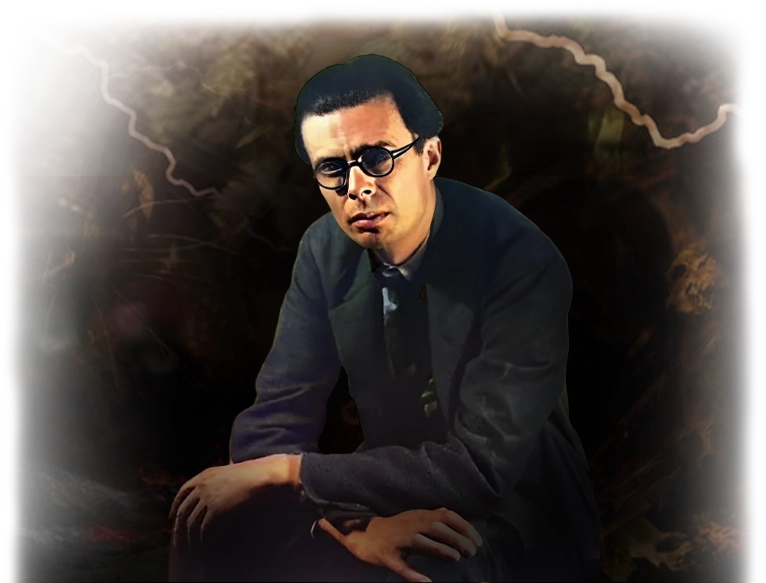
Osho
Philosopher
Osho, born on December 11, 1931, in Kuchwada, India, is a profound figure whose influence extends far beyond the realms of traditional spirituality. Renowned for his revolutionary approach to enlightenment and self-discovery, Osho captivated audiences worldwide with his dynamic teachings and unorthodox perspectives on life, love, and consciousness.
From an early age, Osho exhibited a deep curiosity about the nature of existence, setting him on a lifelong quest for truth and inner transformation. After earning degrees in philosophy and beginning his career as a professor, Osho embarked on a journey of spiritual exploration that would ultimately lead him to become one of the most provocative spiritual leaders of the 20th century.
Drawing inspiration from a diverse array of philosophies, including Zen Buddhism, Taoism, and Western psychology, Osho developed a unique approach to spirituality that emphasized individual freedom, awareness, and meditation. His teachings challenged conventional beliefs and societal norms, inviting followers to question authority and embrace their true selves without inhibition or fear.
Central to Osho's philosophy is the concept of "Zorba the Buddha," a synthesis of the earthly pleasures of Zorba the Greek and the spiritual enlightenment of Gautama Buddha. According to Osho, true enlightenment is not about renouncing the world, but rather, fully embracing it with awareness and consciousness.
Through his vast collection of discourses, books, and meditation techniques, Osho sought to empower individuals to break free from the limitations of the mind and experience life in its totality. His teachings on love, meditation, and mindfulness continue to inspire millions around the world, transcending cultural and religious boundaries.
Despite controversy and criticism, Osho's legacy endures as a beacon of spiritual freedom and self-discovery. His message of unconditional love, radical acceptance, and the transformation of consciousness resonates deeply with seekers of truth and seekers of inner peace alike, ensuring that his influence will continue to shape the spiritual landscape for generations to come.
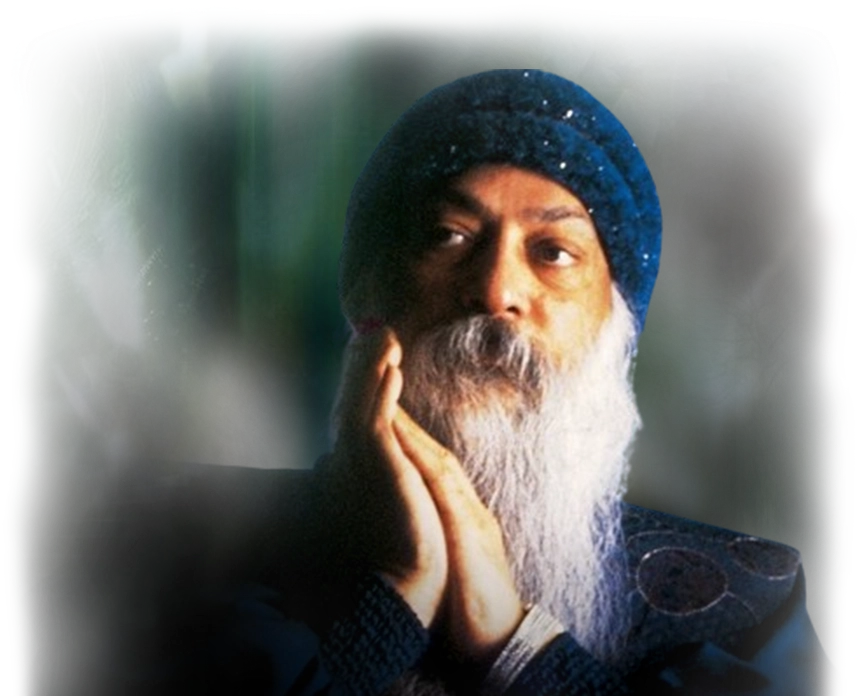
Laozi
Philosopher
Laozi, believed to have lived in the 6th century BCE, is a seminal figure in Chinese philosophy and spirituality. Often considered the founder of Daoism (Taoism), Laozi's life is shrouded in myth and legend, adding to the mystique surrounding his teachings.
Born in ancient China, the exact details of Laozi's life are elusive, with accounts often veiled in metaphor and symbolism. According to tradition, he served as a keeper of the imperial archives during the Zhou Dynasty. However, disillusioned by the corruption and turmoil of society, Laozi embarked on a journey toward spiritual enlightenment.
It is said that during his travels, Laozi encountered Confucius, another prominent figure in Chinese philosophy. Their legendary meeting, often depicted in literature and art, symbolizes the contrast between Confucianism's emphasis on social order and Daoism's focus on natural harmony and spontaneity.
Laozi's magnum opus, the Dao De Jing (Tao Te Ching), is a profound philosophical text that embodies the essence of Daoist thought. Composed of 81 poetic verses, the Dao De Jing expounds upon the concept of the Dao (the Way), an ineffable and transcendent principle underlying all of existence. Through paradoxical language and allegorical imagery, Laozi imparts wisdom on living in harmony with the Dao, advocating for simplicity, humility, and non-action (wu-wei) as paths to spiritual realization.
Despite the enigmatic nature of Laozi's identity and the ambiguity surrounding his teachings, the Dao De Jing has exerted a profound influence on Chinese culture and philosophy for over two millennia. Laozi's philosophy continues to resonate with seekers of truth and wisdom, transcending cultural and temporal boundaries to offer timeless insights into the nature of existence and the human condition.
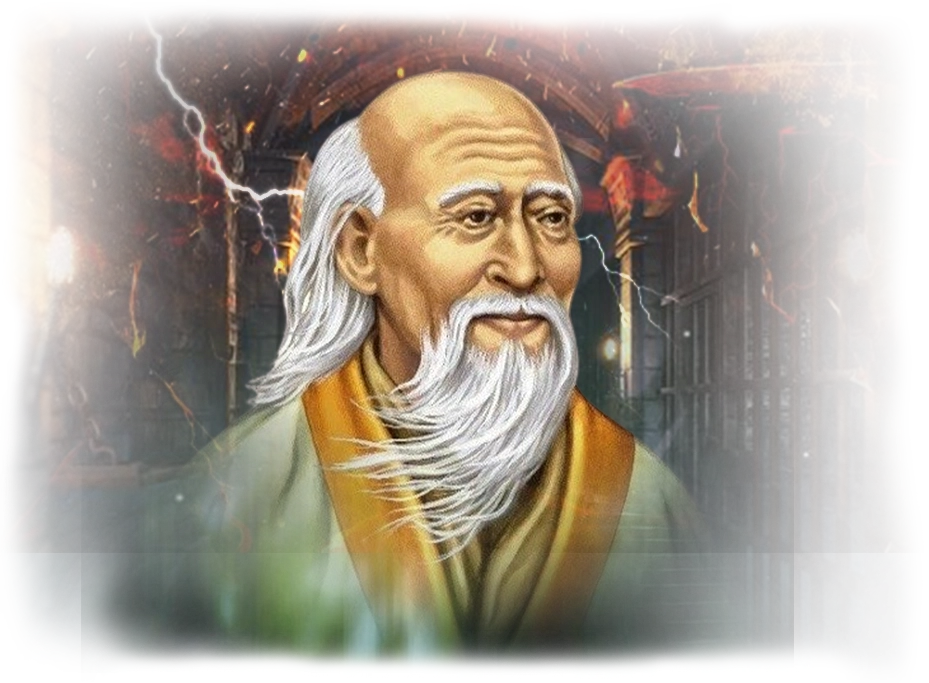
Abhinavagupta
Philosopher
Abhinavagupta (c. 950–1016 CE) was one of India’s greatest philosopher-sages, polymaths, and mystics. Born in Kashmir during the height of the Śaiva tradition, he was a master of philosophy, aesthetics, poetics, and tantric spirituality. His writings remain central to the non-dual tradition of Kashmir Shaivism.
His magnum opus, the Tantrāloka (“Light on the Tantras”), is an encyclopedic synthesis of Shaiva scriptures and rituals, articulating a vision of ultimate reality as pure consciousness (Śiva) in dynamic play with creative energy (Śakti). In addition, his commentaries on aesthetics, particularly his writings on rasa (aesthetic emotion), influenced Indian art, poetry, and drama for centuries.
Abhinavagupta’s thought emphasizes liberation through recognition (pratyabhijñā)—the realization that the self is not separate from the divine consciousness pervading all existence. His fusion of rigorous philosophy and mystical insight places him among the most profound thinkers in both Indian and global intellectual history.
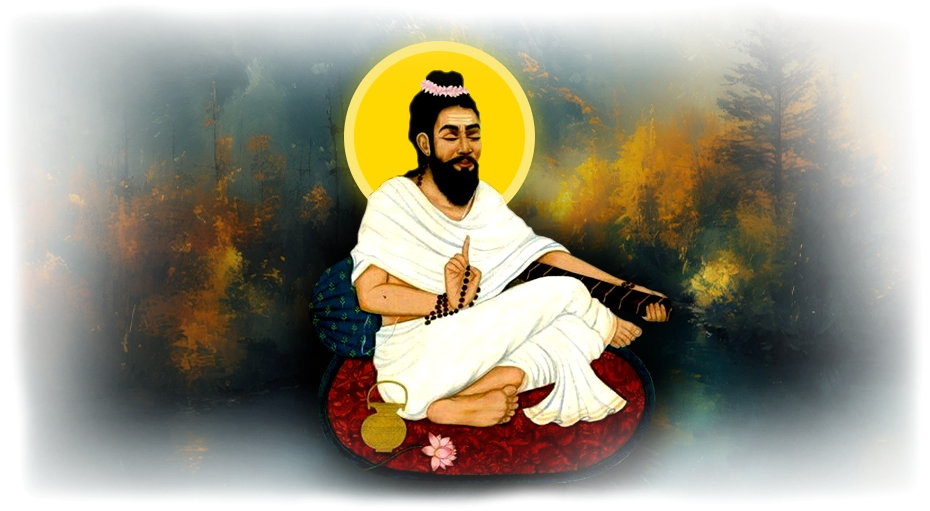
Bernardo Kastrup
Philosopher
Bernardo Kastrup (born 1974) is a contemporary philosopher of mind, computer scientist, and prominent voice in the revival of idealism. Holding Ph.D.s in both philosophy and computer engineering, Kastrup has contributed to fields ranging from artificial intelligence to the metaphysics of consciousness.
Kastrup is best known for his articulation of “analytic idealism,” which posits that consciousness is the fundamental fabric of reality, while matter is derivative. Through books such as The Idea of the World, More Than Allegory, and Why Materialism is Baloney, he challenges reductionist physicalism, arguing that empirical evidence—especially from quantum physics and depth psychology—is more consistent with a reality grounded in mind than matter.
Drawing on Jung, Schopenhauer, and Eastern philosophy, Kastrup advances a worldview where individual psyches are dissociated alters of a universal mind. His accessible yet rigorous work has influenced both academic debates and popular discussions on the nature of consciousness, offering a compelling alternative to materialist orthodoxy.
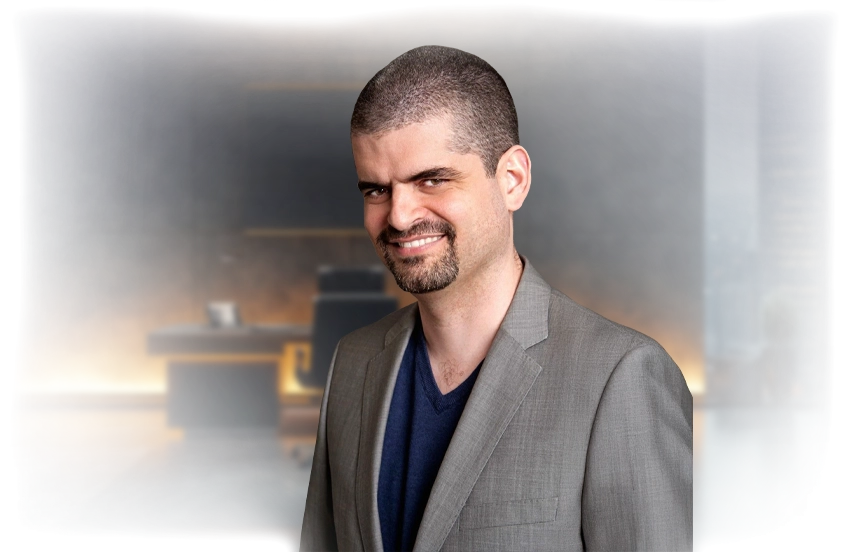
Proclus
Philosopher
Proclus Lycaeus (412–485 CE) one of the last great Neoplatonists, was a philosopher and mystic whose writings synthesized and expanded the Platonic tradition. Born in Constantinople and educated in Alexandria and Athens, Proclus became head of the Platonic Academy in Athens, carrying forward the intellectual heritage of Plato.
Proclus’ vast corpus includes commentaries on Plato, treatises on metaphysics, theology, and mathematics, and the Elements of Theology, a concise yet profound system of metaphysical propositions. His thought emphasizes the hierarchical emanation of reality from the ineffable One, through divine intellects and souls, to the material cosmos.
As a theurgist, Proclus integrated philosophy with ritual practice, affirming that union with the divine required not only rational contemplation but also sacred rites. His influence extended to Christian, Islamic, and Renaissance thinkers, shaping the mystical and metaphysical traditions of the West.
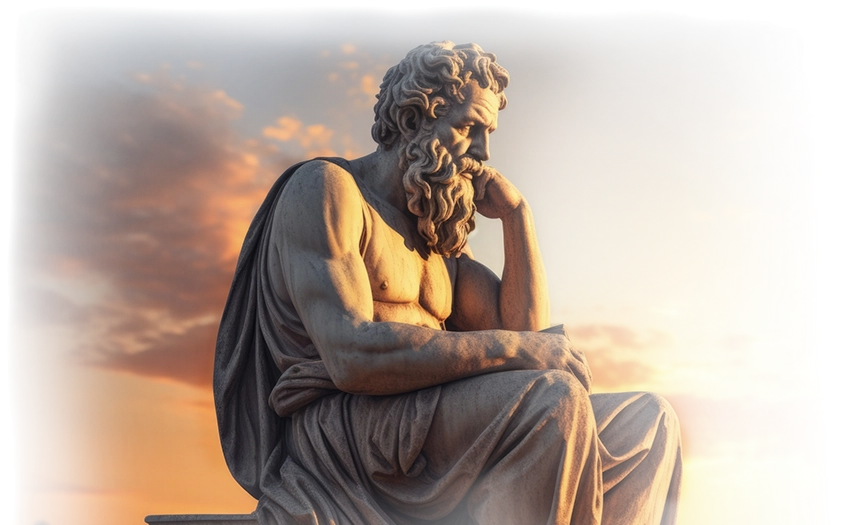
Porphyry
Philosopher
Porphyry of Tyre (c. 234–305 CE) was a philosopher, scholar, and biographer who played a pivotal role in transmitting and interpreting the teachings of Neoplatonism. A student of Plotinus, Porphyry systematized and popularized his teacher’s thought while making original contributions to philosophy, religion, and philology.
His most famous work, Isagoge, served as a standard introduction to Aristotle’s Categories and was widely studied throughout the medieval world. His Life of Plotinus remains the primary source for understanding the founder of Neoplatonism. Porphyry also wrote extensively on logic, metaphysics, ethics, and religion, and he offered sharp critiques of astrology and certain forms of superstition.
Though critical of Christianity, Porphyry’s philosophical legacy was influential across traditions, with his writings studied by both Christian and Islamic scholars. His work bridges the rational and the mystical, offering a vision of philosophy as a pathway to purify the soul and ascend toward the divine.
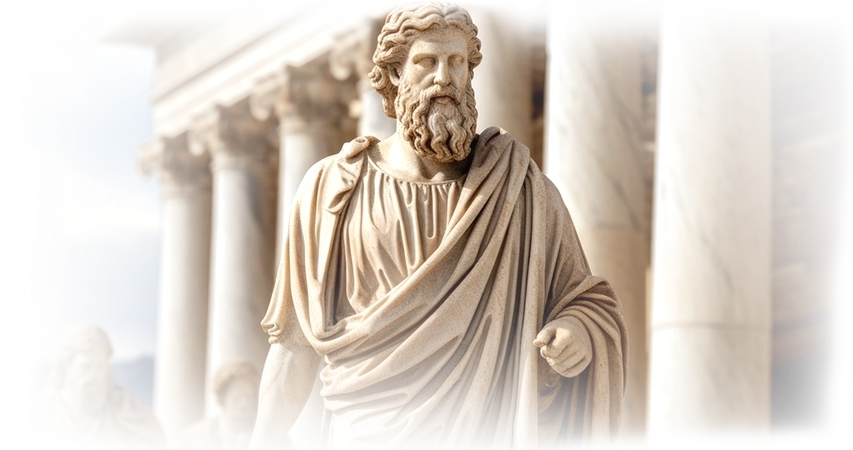
Carl Jung
Psychologists
Carl Gustav Jung (1875-1961), a Swiss psychiatrist and psychoanalyst, profoundly influenced psychology and psychotherapy with his innovative theories. Initially a collaborator of Sigmund Freud, Jung diverged to develop his own school of thought, analytical psychology. Central to his work are concepts such as the collective unconscious, archetypes, and individuation. Jung proposed that the collective unconscious serves as a reservoir of shared symbolic imagery and ancestral memories that shape human behavior and thought patterns across cultures and generations.
His exploration of archetypes, universal symbols present in myths and dreams, elucidated fundamental aspects of the human psyche, including the hero, the shadow, and the anima/animus. Jung's methods, including dream analysis and active imagination, aim to explore and integrate unconscious material for psychological growth and wholeness. He believed that through confronting and integrating unconscious aspects, individuals could achieve a state of psychological wholeness—a process he termed individuation.
This journey towards self-realization involves integrating the conscious and unconscious aspects of the psyche, leading to a more complete and authentic sense of self. Jung's influence extends beyond psychology, impacting fields like literature, anthropology, and religious studies. His visionary insights into the nature of the psyche and the quest for meaning continue to resonate with scholars, therapists, and seekers, cementing his legacy as one of the most influential figures in modern psychology.
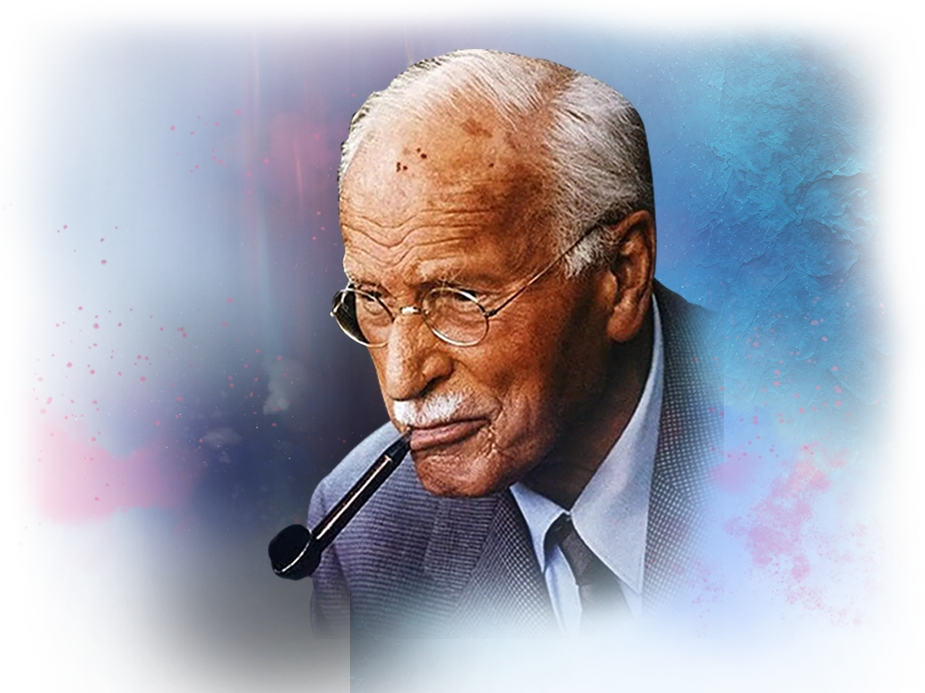
Roberto Assagioli
Psychologists
Roberto Assagioli (born February 27, 1888) occupies a distinguished place among the pioneers of transpersonal psychology and holistic healing, renowned for his transformative contributions to the fields of psychotherapy and spiritual development. Hailing from Venice, Italy, Assagioli embarked on a lifelong journey dedicated to exploring the depths of human consciousness and the integration of mind, body, and spirit.
Educated in medicine, psychiatry, and psychology, Assagioli's pioneering approach synthesized diverse psychological traditions, including psychoanalysis, humanistic psychology, and Eastern spirituality. Through his development of Psychosynthesis, Assagioli provided a comprehensive framework for personal growth and self-realization, emphasizing the harmonious integration of the various dimensions of the human psyche.
Central to Assagioli's therapeutic philosophy is the belief in the inherent potential for wholeness and transformation within each individual. Drawing upon principles of free will, creativity, and spiritual aspiration, Assagioli's work aimed to empower individuals to unlock their inner resources, transcend limiting beliefs, and cultivate a deeper sense of purpose and meaning in life.
Beyond his clinical practice, Assagioli's influence extends to the realms of education, spirituality, and global consciousness. His writings, lectures, and experiential workshops have inspired countless individuals to embark on the journey of self-discovery and inner healing. As a visionary in the field of psychology, Assagioli's legacy continues to resonate, offering profound insights into the nature of human existence and the limitless potential for personal and collective transformation.
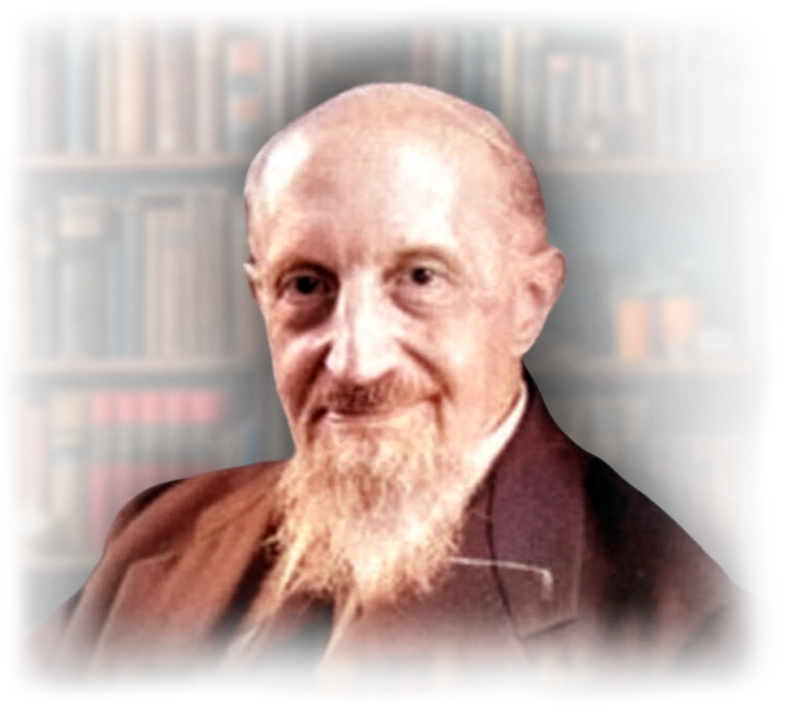
Will Parfitt
Psychologists
Will Parfitt, emerges as a notable figure within the realm of spiritual exploration and personal development. Parfitt's journey into the realms of psychology, spirituality, and esotericism has been marked by an unwavering dedication to understanding the depths of human consciousness and the mysteries of existence.
Parfitt's educational background and formative experiences, whether through formal schooling or personal exploration, have provided the foundation for his profound insights into the human psyche and spiritual transformation. His work spans a variety of disciplines, including psychology, mysticism, astrology, and alchemy, reflecting a holistic approach to understanding the complexities of the human experience.
Central to Parfitt's philosophical framework is the belief in the interconnectedness of mind, body, and spirit, and the transformative power of self-awareness and inner growth. Through his writings, workshops, and teachings, Parfitt has illuminated pathways to personal awakening and spiritual fulfillment, offering practical tools and profound wisdom for individuals seeking to navigate the challenges of modern life and unlock their highest potential.
Beyond his contributions to the field of spiritual and psychological inquiry, Parfitt's engaging presence and accessible teachings have inspired countless seekers on their journey of self-discovery and inner transformation. His commitment to empowering individuals to realize their true essence and live authentically marks him as a visionary in the realm of personal development, whose influence continues to resonate with seekers around the globe.
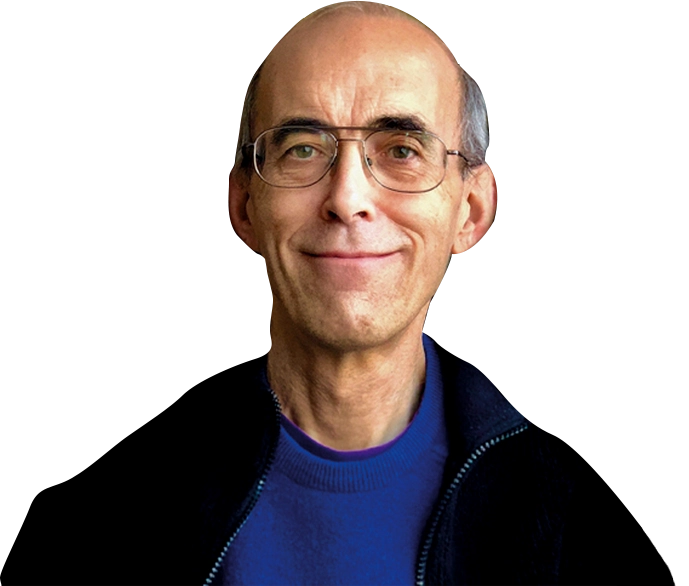
Wolfgang Pauli
Physicists
Wolfgang Pauli (1900-1958) stands as a towering figure in the realm of theoretical physics, renowned for his profound contributions to quantum mechanics and particle physics. Born in Vienna, Austria, Pauli demonstrated exceptional intellectual prowess from a young age. His academic journey culminated in a professorship at the Swiss Federal Institute of Technology (ETH Zurich) by the age of 31, where he continued to make groundbreaking discoveries.
Among Pauli's most notable achievements is the formulation of the Pauli exclusion principle, a fundamental tenet of quantum mechanics. This principle asserts that no two electrons within an atom can occupy the same quantum state simultaneously, laying the groundwork for our understanding of atomic structure and chemical bonding. For this revolutionary insight, Pauli was awarded the Nobel Prize in Physics in 1945, solidifying his place in the annals of scientific history.
Beyond his seminal work on the exclusion principle, Pauli made significant contributions to the development of quantum field theory and the elucidation of the nature of elementary particles. His rigorous mathematical formulations and profound insights continue to inspire physicists worldwide, shaping our understanding of the fundamental forces and particles that govern the universe. Wolfgang Pauli's enduring legacy serves as a testament to the power of intellect, curiosity, and relentless pursuit of knowledge in advancing human understanding.
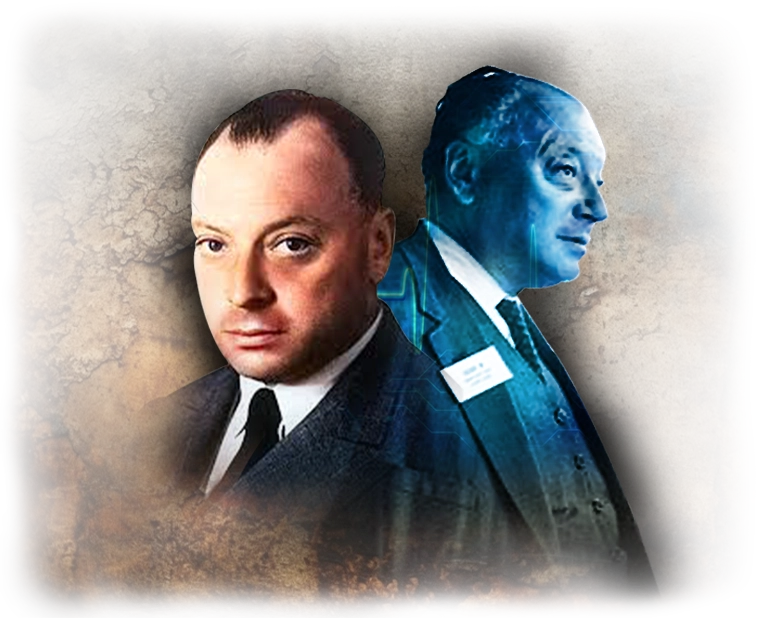
Leonard Susskind
Physicists
Leonard Susskind (born June 1, 1940) stands as one of the leading theoretical physicists of the modern era, renowned for his groundbreaking contributions to the fields of quantum mechanics, particle physics, and cosmology. Born in the Bronx, New York, Susskind's journey as a physicist has been characterized by a relentless pursuit of understanding the fundamental laws that govern the universe.
Educated at the City College of New York and later at Cornell University and Harvard University, Susskind emerged as a pioneering figure in the field of theoretical physics during the latter half of the 20th century. His work on the theory of quantum chromodynamics, string theory, and the holographic principle has revolutionized our understanding of the nature of reality and the fabric of space-time.
Central to Susskind's scientific philosophy is the belief in the power of theoretical inquiry to unlock the deepest mysteries of the universe. Through his lectures, writings, and collaborations with fellow physicists, Susskind has illuminated the frontiers of modern physics, offering profound insights into the nature of black holes, the origins of the cosmos, and the fundamental structure of matter.
Susskind's intellectual legacy extends far beyond the confines of academia, as his engaging lectures and popular science books have inspired countless students and enthusiasts to explore the wonders of the cosmos. His commitment to pushing the boundaries of human knowledge and his ability to communicate complex ideas with clarity and enthusiasm mark him as a true visionary in the field of theoretical physics, whose influence will continue to shape our understanding of the universe for generations to come.
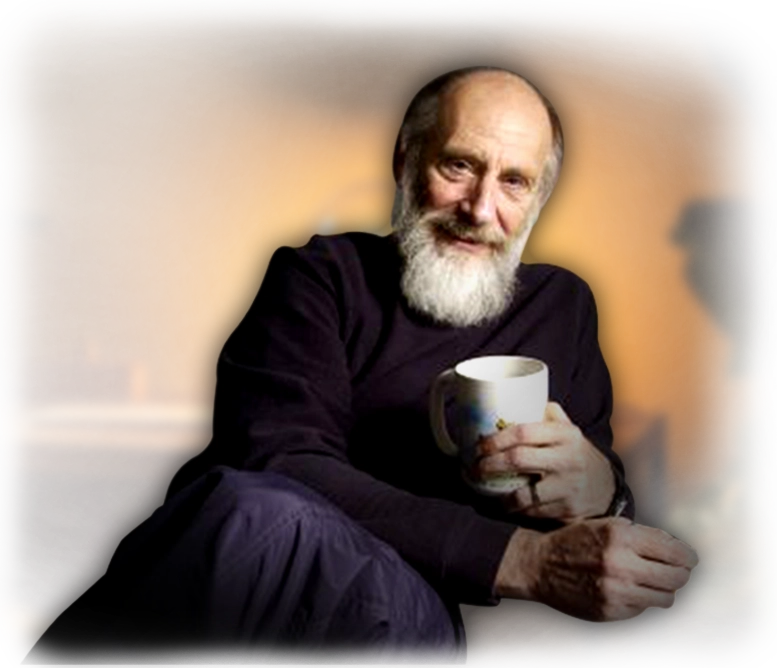
Roger Penrose
Physicists
Roger Penrose (born August 8, 1931) stands as one of the preeminent figures in theoretical physics and mathematics, renowned for his profound contributions to our understanding of the cosmos and the fundamental laws governing it. Hailing from Colchester, England, Penrose's journey as a scientist has been defined by a tireless quest to unravel the mysteries of the universe.
Educated at University College London and later at the University of Cambridge, Penrose emerged as a pioneering intellect in the latter half of the 20th century. His groundbreaking work spans diverse areas including mathematical physics, general relativity, cosmology, and the philosophy of science.
Penrose's most notable contributions include his collaboration with Stephen Hawking on the singularity theorems in the framework of general relativity, which laid the groundwork for our understanding of black holes and the Big Bang singularity. Additionally, his innovative work on the mathematics of tiling and aperiodic patterns has influenced fields as varied as crystallography and the study of quasicrystals.
Central to Penrose's scientific ethos is a profound belief in the power of mathematical insight to reveal the underlying structure of reality. Through his pioneering research, engaging lectures, and prolific writings, Penrose has illuminated the forefront of theoretical physics, offering profound insights into the nature of spacetime, consciousness, and the origins of the universe.
Penrose's intellectual impact transcends the academic realm, as his accessible writings and captivating presentations have captivated audiences worldwide, inspiring countless individuals to delve into the mysteries of the cosmos. His unwavering dedication to pushing the boundaries of human knowledge and his ability to convey complex ideas with clarity and passion establish him as a true luminary in the field of theoretical physics, whose legacy will endure for generations to come.
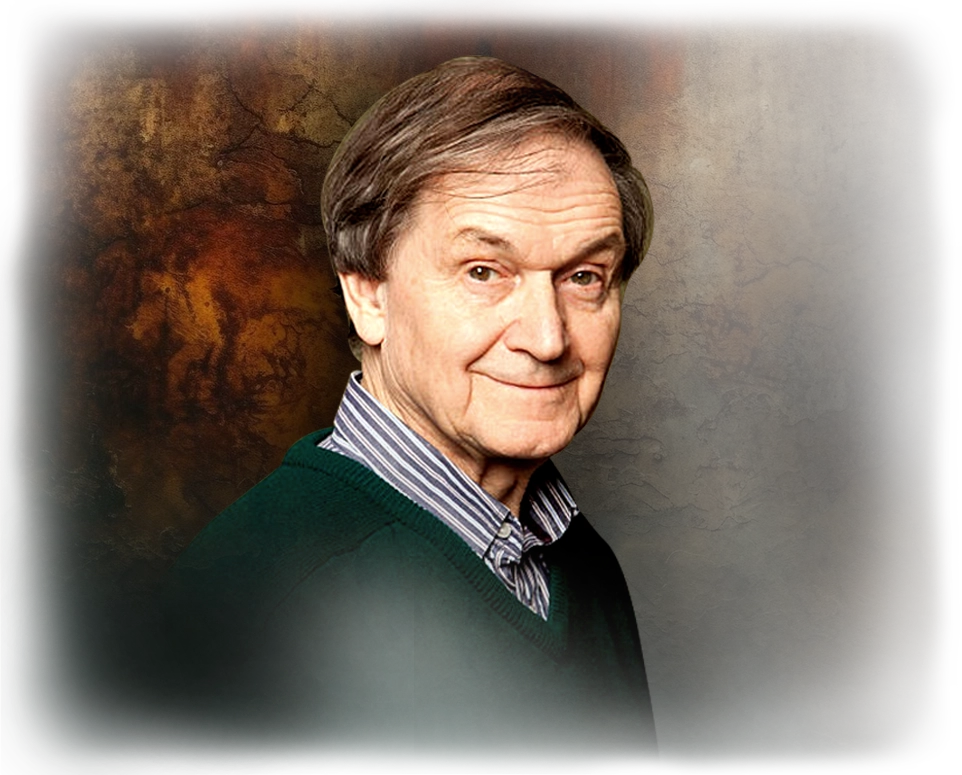
Henry Pierce Stapp
Physicists
Henry Pierce Stapp (born November 3, 1928) stands as a distinguished figure in the realm of theoretical physics, renowned for his profound contributions to the understanding of quantum mechanics and the mind-matter connection. Hailing from the United States, Stapp's journey as a physicist has been defined by an unwavering commitment to unraveling the mysteries of quantum theory and its implications for consciousness.
Educated at the University of Michigan and later at the University of California, Berkeley, Stapp emerged as a pioneering voice in quantum theory during the latter half of the 20th century. His work delving into the foundations of quantum mechanics, particularly the role of consciousness in the measurement process, has sparked profound debates and reshaped our perceptions of reality.
Central to Stapp's scientific philosophy is the notion that consciousness plays a fundamental role in shaping the outcomes of quantum experiments, challenging traditional interpretations of quantum mechanics. Through his research, writings, and collaborations with fellow physicists, Stapp has pushed the boundaries of our understanding of the relationship between mind and matter, offering new insights into the nature of reality itself.
Stapp's intellectual influence extends beyond academia, as his thought-provoking ideas have captivated both scholars and the general public alike. His engaging lectures and thought-provoking books have inspired countless individuals to ponder the deepest questions of existence and the nature of consciousness. Stapp's dedication to exploring the intersection of quantum mechanics and consciousness marks him as a visionary in the field of theoretical physics, whose legacy will undoubtedly continue to shape our understanding of the universe and the human mind for generations to come.

Albert Einstein
Physicists
Albert Einstein (born March 14, 1879) remains an iconic figure in the annals of science, revered as one of the most brilliant minds to have ever graced the realm of theoretical physics. Hailing from Ulm, in the Kingdom of Württemberg, Germany, Einstein's journey through the cosmos of knowledge reshaped the very foundations of modern physics and our perception of the universe.
Educated initially in Switzerland, Einstein's intellectual prowess soon garnered attention, leading to his groundbreaking contributions to the realm of theoretical physics. His revolutionary insights into the nature of space, time, and energy culminated in the development of the theory of relativity, which comprises both the special and general theories, fundamentally altering humanity's understanding of the cosmos.
Einstein's name became synonymous with genius, his theories not only elucidating perplexing phenomena like the behavior of light and the curvature of space but also laying the groundwork for advancements in technology, including the development of nuclear energy and modern cosmology.
Beyond his scientific achievements, Einstein's principled stance against authoritarianism, advocacy for pacifism, and fervent dedication to humanitarian causes solidified his status as a global symbol of intellectual integrity and moral courage.
His legacy transcends disciplines, influencing fields ranging from philosophy to art, and his timeless aphorisms continue to inspire and challenge minds across generations. Einstein's indelible imprint on the fabric of human understanding renders him not only a scientific luminary but also an emblem of the ceaseless pursuit of truth and the boundless potential of the human intellect.
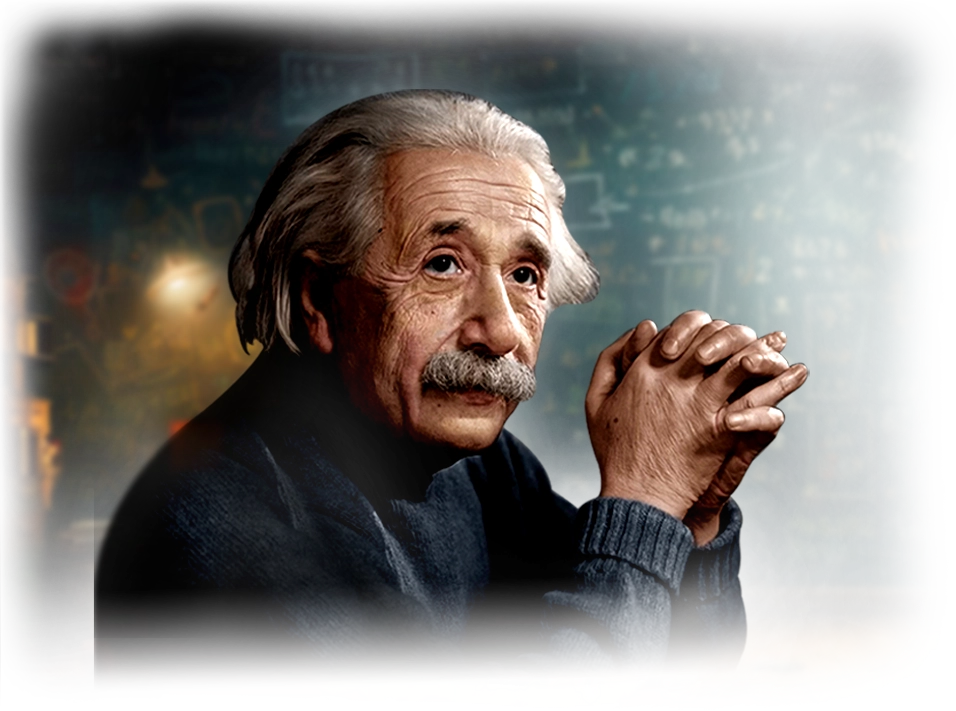
Niels Bohr
Physicists
Niels Bohr (1885–1962) remains an iconic figure in the annals of theoretical physics, revered for his profound contributions to quantum theory and his pioneering insights into the structure of the atom. Born in Copenhagen, Denmark, Bohr's journey as a physicist was characterized by a relentless pursuit of understanding the fundamental nature of matter and energy.
Educated at the University of Copenhagen, where he earned his doctorate in 1911, Bohr quickly rose to prominence as a trailblazing thinker in the burgeoning field of quantum mechanics. His seminal model of the atom, incorporating the revolutionary concept of quantized electron orbits, laid the foundation for modern atomic theory and earned him the Nobel Prize in Physics in 1922.
Central to Bohr's scientific philosophy was his principle of complementarity, which posited that certain phenomena in nature can only be fully understood when viewed from multiple, complementary perspectives. This profound insight not only transformed our understanding of the atomic realm but also profoundly influenced the philosophical underpinnings of quantum theory.
Throughout his career, Bohr played a pivotal role in shaping the course of 20th-century physics, fostering a collaborative environment at his renowned institute in Copenhagen where luminaries such as Werner Heisenberg, Wolfgang Pauli, and Max Born congregated to explore the frontiers of quantum mechanics.
Beyond his scientific pursuits, Bohr was renowned for his diplomatic efforts to promote international cooperation in the pursuit of nuclear disarmament, particularly during the tumultuous years surrounding World War II. His tireless advocacy for peaceful resolution and scientific collaboration earned him widespread admiration and recognition on the global stage.
Bohr's intellectual legacy endures as a beacon of inspiration for generations of physicists, mathematicians, and philosophers, his profound insights into the nature of the quantum world continuing to captivate and challenge our understanding of reality. His unwavering commitment to scientific inquiry, coupled with his visionary foresight and humanitarian ideals, firmly establish him as one of the towering figures of 20th-century science, whose influence reverberates across disciplines and generations.
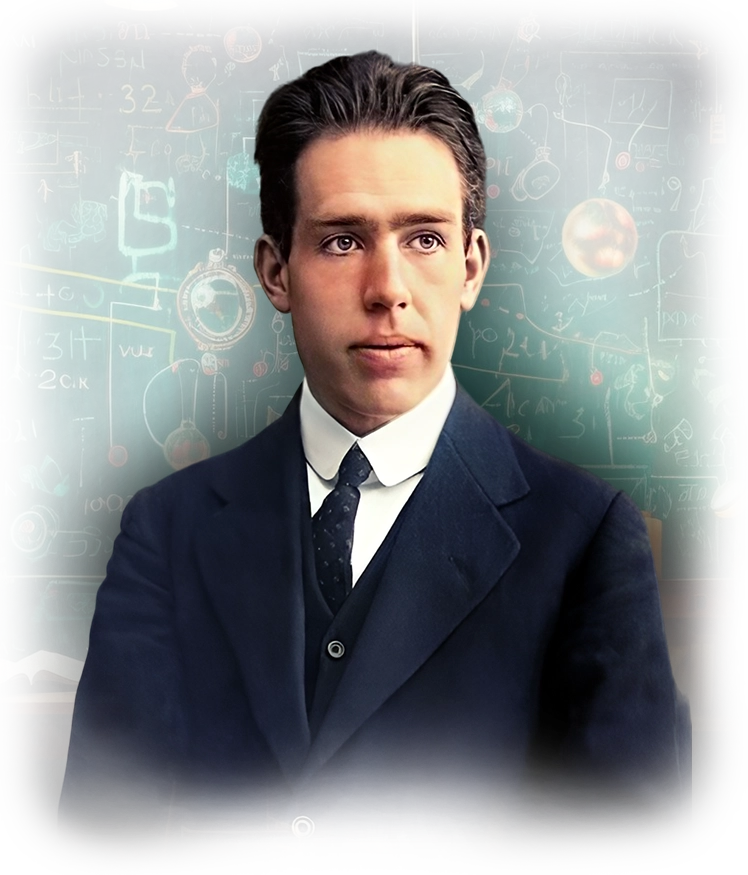
Werner Karl Heisenberg
Physicists
"Werner Karl Heisenberg (December 5, 1901 – February 1, 1976) remains an iconic figure in the annals of theoretical physics, celebrated for his profound contributions to quantum mechanics and his pivotal role in shaping the course of 20th-century physics. Hailing from Würzburg, Germany, Heisenberg's journey as a physicist was marked by a relentless quest to unravel the mysteries of the subatomic realm and redefine our understanding of the fundamental laws governing the universe.
Educated at the University of Munich and subsequently at the University of Göttingen, Heisenberg emerged as a prodigious talent in the realm of theoretical physics during the interwar period. His groundbreaking work on matrix mechanics and the uncertainty principle, formulated in 1925, laid the foundation for a revolutionary new framework of understanding at the quantum level. This principle, encapsulated in his famous uncertainty relations, fundamentally altered our perception of reality, asserting that certain pairs of physical properties cannot be precisely known simultaneously.
Heisenberg's seminal contributions extended beyond his uncertainty principle, encompassing a wide array of topics within theoretical physics. His development of quantum mechanics, alongside other luminaries such as Max Born and Erwin Schrödinger, ushered in a new era of understanding, challenging classical notions of determinism and causality. His matrix formulation provided a powerful mathematical tool for describing the behavior of particles on the atomic and subatomic scale, paving the way for countless applications in fields ranging from atomic physics to solid-state electronics.

Central to Heisenberg's scientific ethos was a profound appreciation for the inherent limitations of human knowledge and the role of uncertainty in the fabric of reality. His philosophical reflections on the nature of scientific inquiry and the relationship between theory and observation continue to stimulate discourse and debate within the scientific community.
Beyond his scholarly endeavors, Heisenberg's legacy endures as a testament to the transformative power of scientific insight and the enduring quest for understanding. His influence reverberates not only within the halls of academia but also in the broader cultural consciousness, inspiring generations of scientists and thinkers to grapple with the profound implications of quantum theory and the mysteries of the cosmos. Werner Karl Heisenberg stands as a towering figure in the pantheon of modern physics, whose indelible contributions will continue to shape our understanding of the universe for generations to come."

Gerard 't Hooft
Physicists
Gerard 't Hooft, born on July 5, 1946, is a distinguished figure in the realm of theoretical physics, celebrated for his seminal contributions to our understanding of fundamental forces and the structure of the universe. Hailing from the Netherlands, 't Hooft's journey as a physicist has been characterized by a relentless pursuit of unraveling the mysteries of the cosmos.
Educated at Utrecht University, 't Hooft emerged as a leading figure in theoretical physics during the latter half of the 20th century. His groundbreaking work on gauge theories, quantum field theory, and the fundamental nature of particle interactions has reshaped our comprehension of the universe's deepest workings.
Central to 't Hooft's scientific ethos is a profound belief in the power of mathematical elegance to reveal the underlying principles governing the universe. His research, often at the forefront of theoretical inquiry, has shed light on phenomena ranging from the behavior of subatomic particles to the dynamics of black holes.
Beyond academia, 't Hooft's influence extends through his engaging lectures, writings, and collaborations with fellow physicists. His ability to articulate complex concepts with clarity and enthusiasm has inspired generations of students and enthusiasts to delve into the mysteries of theoretical physics.
As a visionary in his field, 't Hooft's intellectual legacy continues to shape our understanding of the cosmos, leaving an indelible mark on the trajectory of theoretical physics for generations to come.
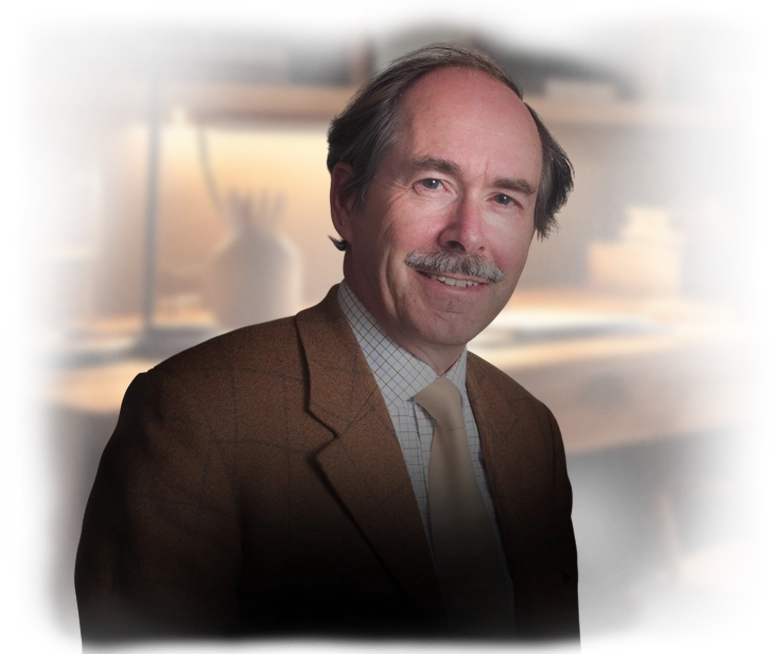
Hugh Everet
Physicists
Hugh Everett III (November 11, 1930 – July 19, 1982) is a seminal figure in theoretical physics, renowned for his groundbreaking contributions that have profoundly impacted our understanding of quantum mechanics and the nature of reality. Born in Washington, D.C., Everett embarked on a journey driven by intellectual curiosity and a fervent desire to unravel the enigmas of the cosmos.
Educated at Princeton University, Everett displayed exceptional aptitude in mathematics and physics, laying the groundwork for his later transformative work. During his doctoral studies at Princeton, Everett formulated the groundbreaking concept known as the "many-worlds interpretation" of quantum mechanics. This radical idea suggests that every quantum event spawns a multitude of parallel universes, each representing a distinct outcome.
His proposal challenged conventional interpretations of quantum theory and ignited spirited debate within the scientific community. Despite encountering skepticism initially, Everett's ideas have since garnered widespread recognition and continue to shape discourse in quantum physics and philosophy.
Beyond his theoretical contributions, Everett's legacy encompasses profound insights into the nature of probability, measurement, and the implications of quantum theory for our comprehension of the cosmos. His work has inspired successive generations of physicists and philosophers to explore the ramifications of his ideas, sparking ongoing investigations into the fundamental fabric of reality.
Despite his premature demise, Everett's intellectual legacy persists, with his ideas continuing to captivate and stimulate inquiry into the deepest mysteries of existence. His pioneering vision and enduring influence establish him as a visionary thinker whose impact on theoretical physics will endure for generations to come.
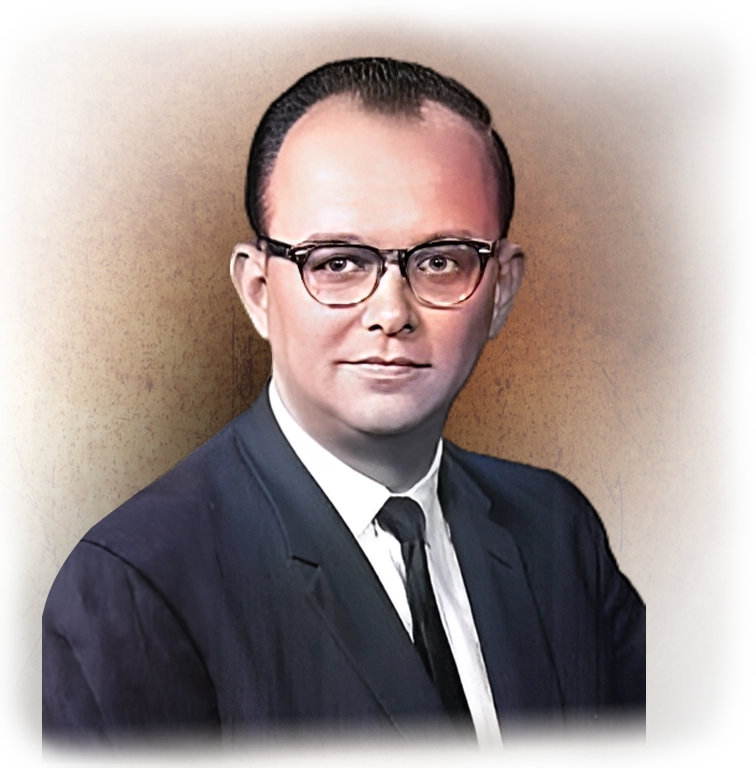
Erwin Schrödinger
Physicists
Erwin Schrödinger (1887–1961) is celebrated as a towering figure in the history of 20th-century physics, distinguished for his profound contributions to quantum mechanics and theoretical physics. Originating from Austria, Schrödinger's scientific journey was defined by an insatiable quest to comprehend the fundamental essence of reality.
Schrödinger received his education at the University of Vienna and later at the University of Zurich, emerging as a trailblazer during the dynamic period of quantum mechanics' emergence. His seminal wave equation, formulated in 1926, provided the cornerstone for modern comprehension of quantum particle behavior, meriting him the Nobel Prize in Physics in 1933.
At the heart of Schrödinger's scientific philosophy lay a profound fascination with the enigmatic phenomena of the quantum realm. His renowned thought experiment, famously known as "Schrödinger's cat," encapsulates the perplexing concept of quantum superposition and its challenge to conventional perceptions of reality.
In addition to his groundbreaking contributions to theoretical physics, Schrödinger's legacy extends into diverse realms, including biology and philosophy. His exploration of the interconnections between physics and biology, as articulated in his influential work "What is Life?" published in 1944, foreshadowed the interdisciplinary approach that would come to define much of 20th-century scientific inquiry.
Schrödinger's intellectual impact reverberates across academia and popular culture, inspiring successive generations of physicists and thinkers to grapple with the profound mysteries of the quantum domain. His unwavering commitment to unraveling nature's deepest secrets and his remarkable ability to articulate intricate concepts with clarity and insight establish him as an eminent figure in the realm of theoretical physics, whose influence will endure for generations to come.
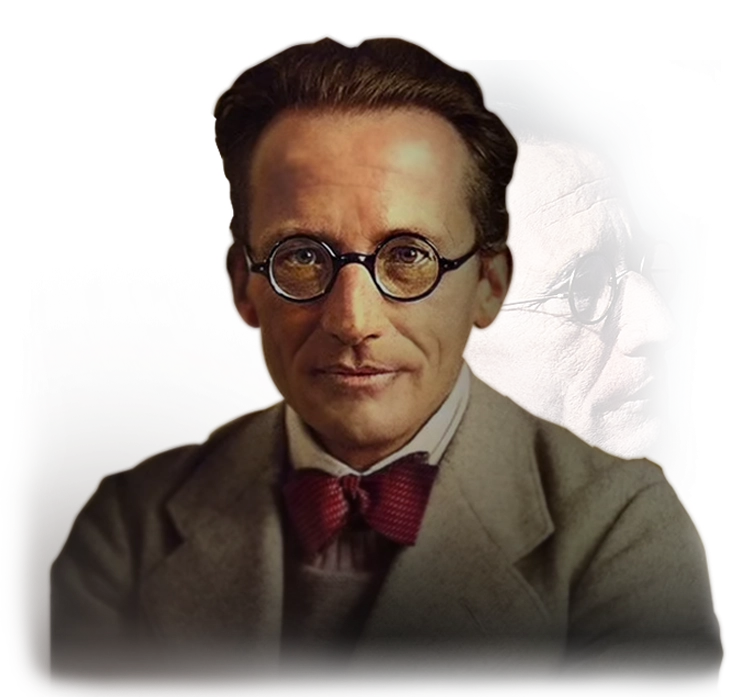
John von Neumann
Physicists
John von Neumann (December 28, 1903 – February 8, 1957) stands as a towering figure in the realms of mathematics, physics, computer science, and economics. Hailing from Budapest, Hungary, von Neumann's intellectual journey epitomizes the fusion of genius and versatility.
Educated at the University of Budapest and later at the University of Göttingen, von Neumann's brilliance became evident early on, as he made significant contributions to a wide array of fields, ranging from set theory and functional analysis to quantum mechanics and game theory.
During his tenure at the Institute for Advanced Study in Princeton and his affiliations with institutions like Princeton University and the Los Alamos Laboratory, von Neumann emerged as a key architect of modern mathematical physics. His pioneering work in the development of quantum mechanics, particularly his formulation of the mathematical framework for quantum mechanics known as Hilbert space, laid the groundwork for much of contemporary theoretical physics.
Beyond his profound impact on the theoretical sciences, von Neumann's influence extended into the burgeoning field of computer science. His contributions to the design and architecture of digital computers, i cluding his concept of the stored-program computer, revolutionized the landscape of computing and paved the way for the digital age.
Moreover, von Neumann's insights into game theory and his foundational contributions to the field have had far-reaching implications in economics, political science, and evolutionary biology, profoundly shaping our understanding of strategic decision-making and competitive interactions.
Throughout his illustrious career, von Neumann's intellectual prowess was matched only by his visionary outlook and interdisciplinary approach to problem-solving. His legacy endures not only in the annals of academia but also in the technological marvels and strategic frameworks that continue to define our modern world.
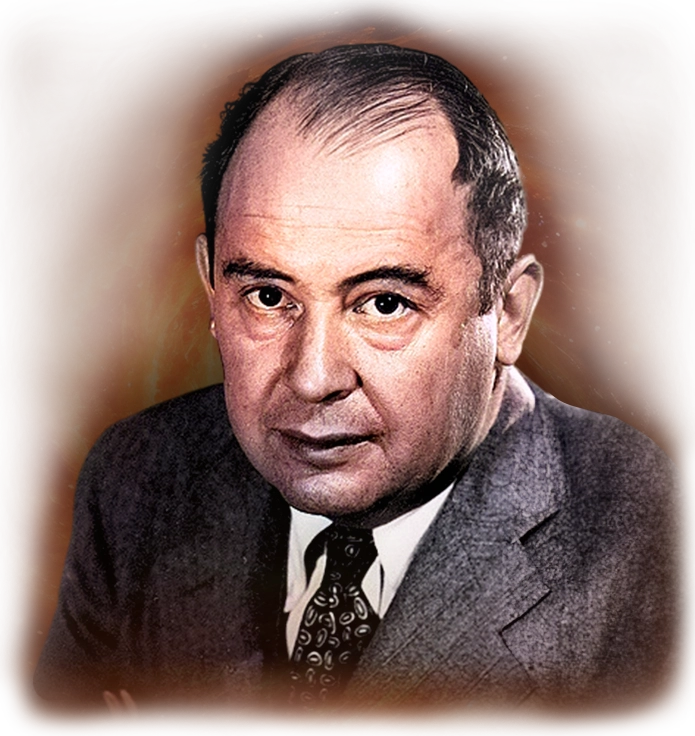
Stephen Meyer
Philosopher of Science
Stephen C. Meyer (born 1958) is a philosopher of science and leading advocate for the theory of intelligent design. With a Ph.D. in the philosophy of science from the University of Cambridge, Meyer’s work explores the origin of life, biological information, and the foundations of scientific inquiry. His writings engage both scientific evidence and metaphysical questions, situating his thought at the intersection of biology, cosmology, and philosophy.
Meyer’s most notable works include Signature in the Cell, which examines the problem of information in DNA, Darwin’s Doubt, which challenges the sufficiency of neo-Darwinian explanations for the Cambrian explosion, and Return of the God Hypothesis, which integrates findings from cosmology and physics with philosophical arguments for theism. Through these works, Meyer contends that life’s origin and the fine-tuning of the universe are best explained by an intelligent cause rather than undirected natural processes.
While controversial within mainstream science, Meyer’s contributions have had a wide cultural impact, stimulating debate on the relationship between science, metaphysics, and faith. His work challenges conventional materialism, calling for renewed philosophical openness in interpreting the natural world.
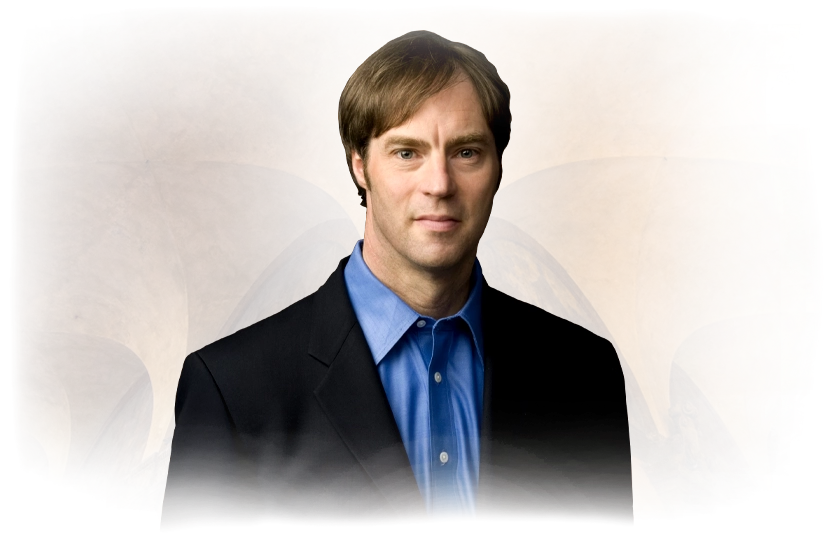
Donald Hoffman
Cognitive Scientist
Donald D. Hoffman (born 1955) is an American cognitive psychologist and author whose work challenges fundamental assumptions about perception and reality. A professor emeritus at the University of California, Irvine, Hoffman earned his Ph.D. in computational psychology at MIT and has dedicated his career to exploring how consciousness shapes human experience.
His theory of “conscious realism” argues that what we perceive is not an objective reflection of reality, but a user interface constructed by the mind to guide adaptive behavior. In The Case Against Reality, Hoffman demonstrates through evolutionary game theory and perceptual science that fitness—not truth—drives the evolution of perception.
Hoffman’s bold hypothesis suggests that consciousness itself is fundamental, and that space, time, and matter arise as emergent constructs from networks of conscious agents. His interdisciplinary approach bridges psychology, neuroscience, computer science, and philosophy, offering a radical rethinking of how reality is structured and known.
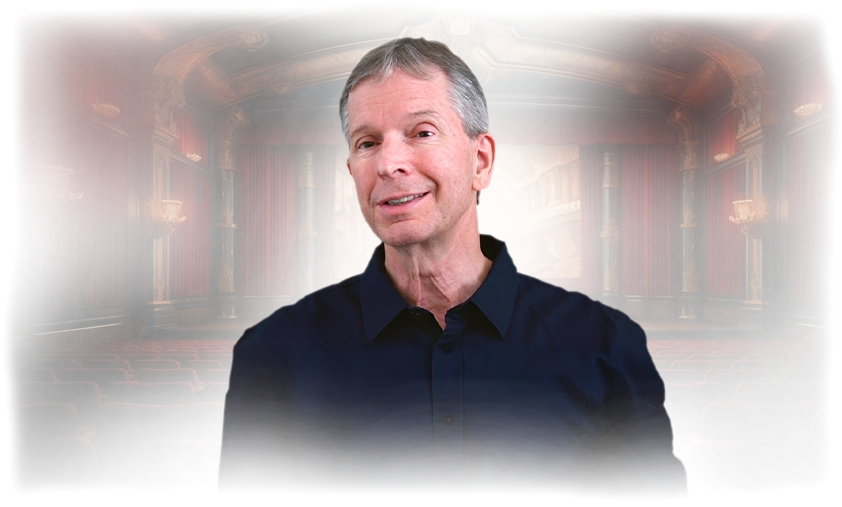
Swami Vivekananda
Spiritual Teacher
Swami Vivekananda (born Narendra Nath Datta on January 12, 1863) stands as an iconic figure in the realm of spiritual and philosophical thought, revered for his profound insights and dynamic contributions to the understanding of Hinduism and the promotion of interfaith harmony. Hailing from Kolkata, India, Swami Vivekananda's life journey embodies a quest for spiritual realization and a fervent dedication to uplifting humanity.
Educated in the ancient scriptures of Hinduism and inspired by the teachings of his guru, Sri Ramakrishna, Swami Vivekananda emerged as a spiritual luminary during the late 19th century. His iconic address at the Parliament of the World's Religions in Chicago in 1893 captured the attention of the global audience, where he eloquently articulated the universal message of tolerance, acceptance, and the unity of all religions.
Central to Swami Vivekananda's philosophy is the idea of self-realization through service to others. His teachings emphasize the unity of all beings and the inherent divinity within each individual, transcending boundaries of caste, creed, and nationality. Through his profound lectures, writings, and personal example, Swami Vivekananda ignited a spiritual awakening not only in India but across the globe, inspiring countless individuals to seek inner fulfillment and strive for the betterment of society.
Swami Vivekananda's legacy extends beyond the realm of spirituality, as he was also a staunch advocate for social reform, education, and the empowerment of the marginalized. His timeless message of harmony, tolerance, and selfless service continues to resonate with people of all backgrounds, inspiring them to lead lives of purpose and compassion.
In summary, Swami Vivekananda stands as a towering figure in the annals of history, whose timeless wisdom and boundless compassion continue to illuminate the path towards spiritual growth, social harmony, and universal brotherhood.
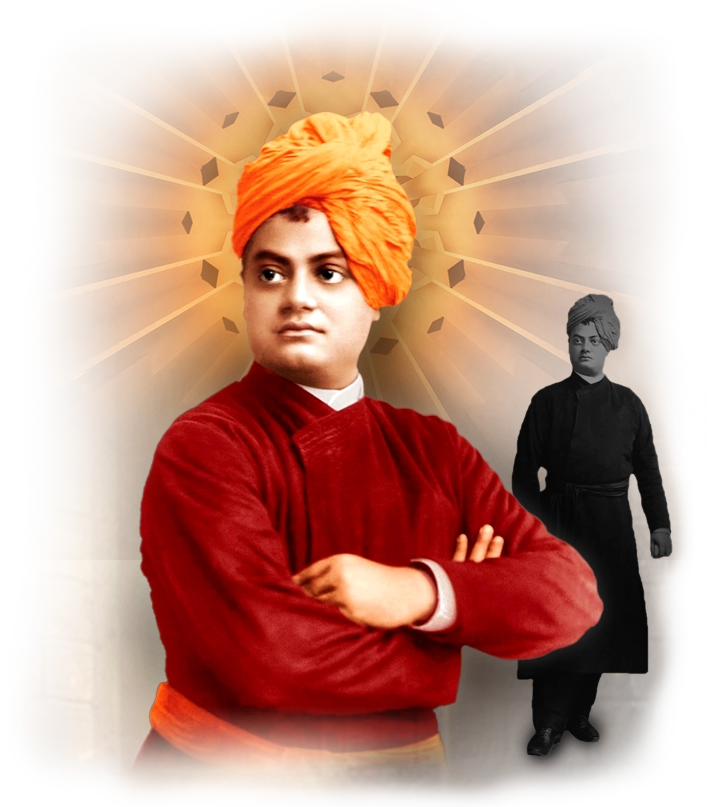
Ramakrishna
Spiritual Teacher
Ramakrishna (1836–1886) stands as a towering figure in the realm of spirituality and religious philosophy, renowned for his profound insights and devotion to the pursuit of divine realization. Born in the village of Kamarpukur in Bengal, India, Ramakrishna's life journey was marked by an unwavering commitment to understanding the nature of existence and the essence of God.
Growing up in a devout Brahmin family, Ramakrishna exhibited spiritual inclinations from an early age. Despite minimal formal education, his keen intellect and deep spiritual yearning led him to embark on a lifelong quest for spiritual enlightenment.
Under the guidance of various spiritual mentors and through intense periods of meditation and prayer, Ramakrishna explored the depths of different religious traditions, including Hinduism, Islam, and Christianity. His experiences led him to the profound realization that all paths ultimately lead to the same divine truth, emphasizing the universality of spiritual experience and the underlying unity of existence.
Ramakrishna's teachings emphasized the importance of direct experience of God, transcending the confines of ritualistic practices and intellectual speculation. His ecstatic devotion and childlike simplicity endeared him to seekers from all walks of life, inspiring a spiritual revival in 19th-century India.
Central to Ramakrishna's message was the concept of "Viveka" or discrimination, encouraging individuals to discern the eternal from the transient and to strive for the realization of their true spiritual nature. His teachings laid the foundation for the Ramakrishna-Vivekananda movement, which continues to propagate his message of harmony, tolerance, and spiritual realization worldwide.
Beyond his spiritual legacy, Ramakrishna's life serves as a timeless example of the transformative power of devotion and the universal quest for meaning and fulfillment. His influence transcends religious boundaries, inspiring seekers of truth across cultures and generations, and his profound teachings continue to resonate with those in search of spiritual understanding and inner peace.
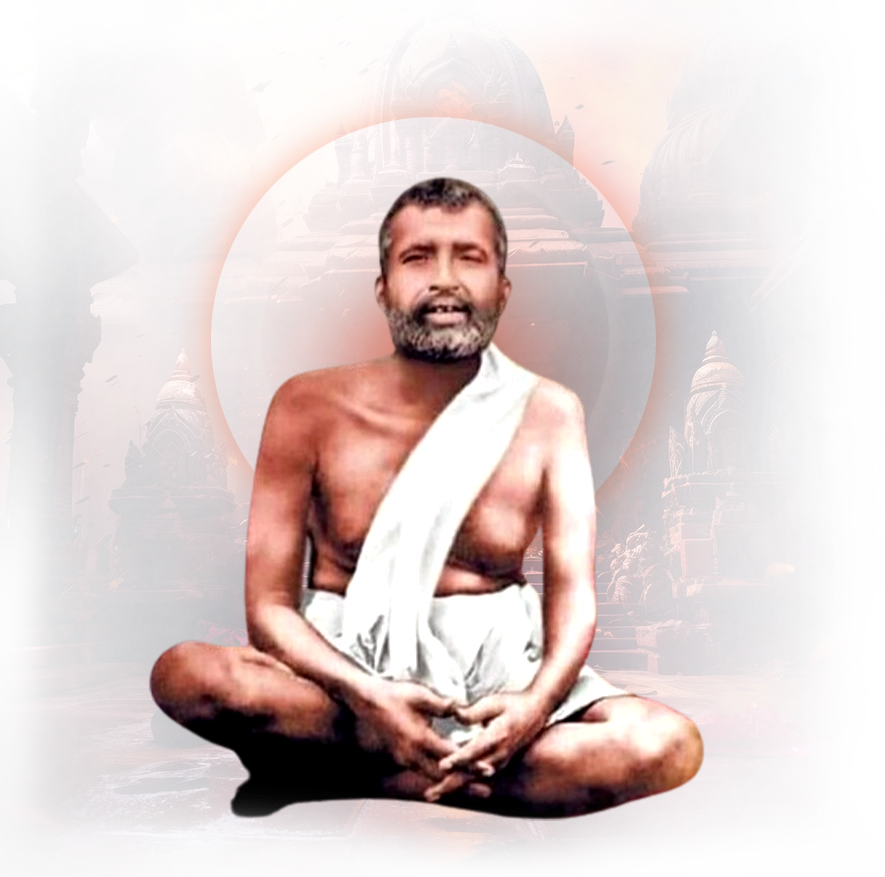
Jesus Christ
Spiritual Teacher
Jesus Christ, a central figure in Christianity, holds an unparalleled significance in the spiritual and cultural landscape of the world. Believed by Christians to be the Son of God and the savior of humanity, Jesus is revered as a teacher, healer, and prophet whose life and teachings have profoundly impacted the course of history.
Traditionally believed to have been born in Bethlehem around 4 BCE, Jesus grew up in Nazareth, a town in ancient Israel. Little is known about his early life, but according to the New Testament of the Bible, he began his public ministry around the age of 30, preaching messages of love, compassion, forgiveness, and the coming of the Kingdom of God.
Jesus' teachings, conveyed through parables and sermons, emphasized the importance of humility, mercy, and the ethical treatment of others. He challenged established religious authorities, advocated for the marginalized and oppressed, and performed numerous miracles, including healing the sick and raising the dead.
Central to Jesus' message was the concept of salvation through faith and repentance, offering reconciliation with God and eternal life to those who believed in him. His crucifixion by the Roman authorities in Jerusalem, followed by his resurrection three days later, is the cornerstone of Christian belief, symbolizing redemption and victory over sin and death.
The impact of Jesus' life, death, and resurrection reverberates through history, shaping the development of Western civilization and influencing countless individuals across cultures and centuries. His teachings have inspired countless works of art, literature, and music, and his example continues to inspire millions of people around the world to strive for lives of faith, love, and service.
Whether viewed through a lens of religious devotion or historical significance, Jesus Christ remains an enduring figure of profound spiritual and cultural significance, whose legacy continues to resonate with believers and seekers alike.

The Buddha
Spiritual Teacher
Siddhartha Gautama, popularly known as the Buddha, is an influential figure whose life and teachings have left an enduring impact on humanity. Born in ancient India, circa the 6th century BCE, Siddhartha's journey from a privileged prince to an enlightened spiritual leader is a tale revered across cultures and times.
Hailing from the Shakya clan, situated in what is now Nepal, Siddhartha's early life was one of opulence and comfort. Yet, driven by a profound quest for truth and meaning, he chose to forsake his royal upbringing and embarked on a spiritual quest in pursuit of enlightenment.
Following years of austere practice and deep contemplation, Siddhartha achieved enlightenment while meditating beneath the Bodhi tree in Bodh Gaya, India. This pivotal moment marked the inception of Buddhism, a transformative spiritual tradition centered on the Four Noble Truths and the Eightfold Path.
Siddhartha's teachings, encapsulated in the Dhamma or Dharma, emphasize principles of compassion, mindfulness, and the alleviation of suffering. His profound insights into the human condition, the nature of existence, and the path to liberation resonate with millions worldwide.
Beyond his role as the founder of Buddhism, Siddhartha Gautama is revered as an embodiment of wisdom, compassion, and enlightenment. His life story serves as an enduring testament to the human capacity for growth and spiritual awakening, inspiring generations to seek inner peace and enlightenment.

A. C. BHAKTIVEDANTA Swami Prabhupada
Spiritual Teacher
A.C. Bhaktivedanta Swami Prabhupada (born Abhay Charan De on September 1, 1896) is revered as a spiritual luminary and cultural ambassador, whose profound teachings and pioneering efforts have left an indelible mark on the landscape of modern spirituality. Hailing from Calcutta, India, Prabhupada's life journey embodies a profound commitment to spreading the timeless wisdom of ancient Vedic culture to every corner of the globe.
Imbued with a deep sense of devotion from an early age, Prabhupada embarked on a spiritual quest that would ultimately lead him to become one of the most influential spiritual leaders of the 20th century. After meeting his spiritual master, Srila Bhaktisiddhanta Sarasvati Thakura, in 1922, Prabhupada dedicated himself wholeheartedly to the practice and propagation of Bhakti Yoga, the path of loving devotion to the Supreme.
Despite facing numerous challenges and setbacks, including the loss of his family, Prabhupada remained steadfast in his mission to spread the teachings of Bhagavad Gita and Srimad Bhagavatam, two foundational texts of the Vedic tradition. In 1965, at the age of 69, Prabhupada embarked on a historic journey to the United States, where he founded the International Society for Krishna Consciousness (ISKCON), with the vision of establishing a global spiritual movement centered around the principles of devotion, compassion, and self-realization.
Prabhupada's profound spiritual insights and unwavering dedication to his mission have inspired millions of individuals around the world to embrace the path of Bhakti Yoga and lead lives of purpose, integrity, and spiritual fulfillment. His numerous writings, translations, and discourses on Vedic philosophy continue to serve as a beacon of wisdom and guidance for seekers of truth, transcending geographical and cultural boundaries.
Prabhupada's enduring legacy as a spiritual teacher, cultural ambassador, and visionary leader continues to resonate deeply in the hearts and minds of people from all walks of life, affirming his status as a timeless spiritual luminary whose influence will continue to inspire and uplift humanity for generations to come.
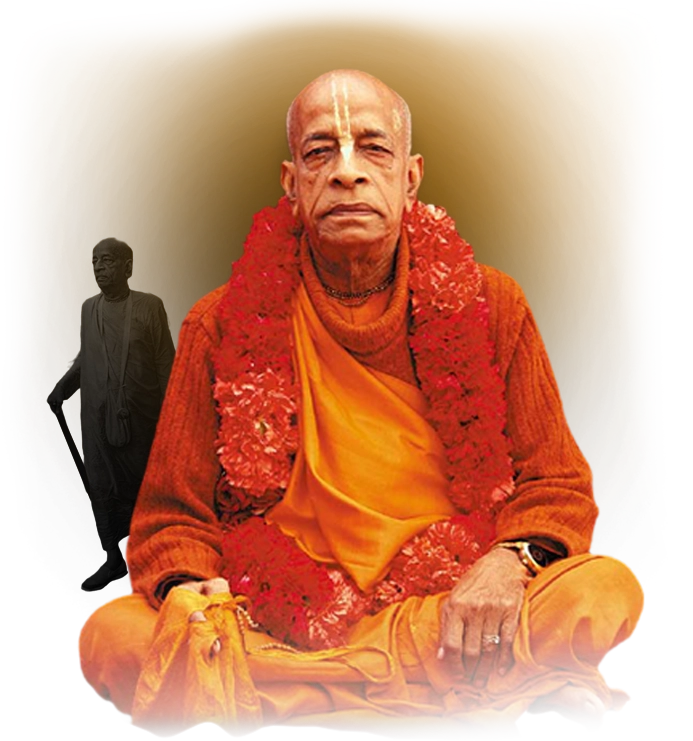
Aleister Crowley
Occultist
Aleister Crowley (born Edward Alexander Crowley on October 12, 1875) is a figure whose life and work have left an indelible mark on the landscape of occultism, mysticism, and esoteric philosophy. Born in Royal Leamington Spa, Warwickshire, England, Crowley's journey through the realms of spirituality and the occult was marked by a quest for personal enlightenment and a relentless exploration of the boundaries of human consciousness.
Educated at Trinity College, Cambridge, Crowley's early years were characterized by a rebellious spirit and a voracious appetite for knowledge. Inspired by a wide array of mystical traditions, including Hermeticism, Kabbalah, and Eastern mysticism, Crowley embarked on a journey of self-discovery that would lead him to become one of the most controversial and influential figures in the occult world.
Central to Crowley's spiritual philosophy is the belief in the inherent divinity of the self and the pursuit of one's true will. Through his teachings, rituals, and writings, including his seminal work "The Book of the Law," Crowley sought to awaken individuals to their own potential for spiritual liberation and self-realization.
Crowley's legacy extends beyond his contributions to occultism, as he was also a prolific writer, poet, and mountaineer. His works, which include poetry collections, essays on mysticism, and autobiographical accounts of his spiritual journey, continue to captivate and inspire readers to this day.
Despite controversy surrounding his unconventional lifestyle and provocative teachings, Crowley's influence on modern spirituality and popular culture cannot be overstated. His ideas have resonated with artists, musicians, and spiritual seekers across the globe, cementing his status as a seminal figure in the history of the occult and a true iconoclast whose legacy continues to fascinate and provoke thought.
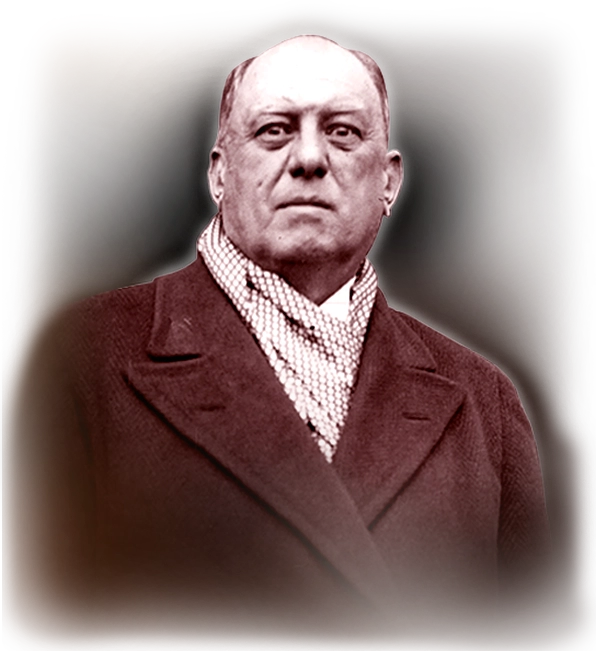
Kenneth Grant
Occultist
Kenneth Grant (born May 23, 1924) stands as a significant figure in the realm of occultism and esotericism, revered for his profound contributions to the understanding of mysticism, magick, and the occult tradition. Hailing from England, Grant's journey as a practitioner and scholar of the occult has been marked by a tireless quest for uncovering the hidden truths of the universe.
Educated in both formal academia and esoteric traditions, Grant emerged as a leading voice in the occult community during the latter half of the 20th century. His work on ceremonial magick, the occult significance of Aleister Crowley's teachings, and the exploration of the "Typhonian" currents within occultism has reshaped perspectives on the nature of consciousness and the universe.
Central to Grant's spiritual philosophy is the conviction in the transformative power of magickal practice to unveil the mysteries of existence. Through his writings, rituals, and collaborations with fellow occultists, Grant has delved into the depths of arcane knowledge, offering profound insights into the nature of the subconscious mind, the workings of ceremonial magick, and the evolution of consciousness.
Grant's influence extends far beyond the boundaries of occult circles, as his engaging books and esoteric teachings have inspired generations of seekers to delve into the realms of the unknown. His dedication to unraveling the secrets of the occult and his ability to articulate intricate concepts with depth and clarity distinguish him as a seminal figure in esoteric studies, whose legacy continues to shape the spiritual landscape for those who seek to explore the hidden dimensions of reality.
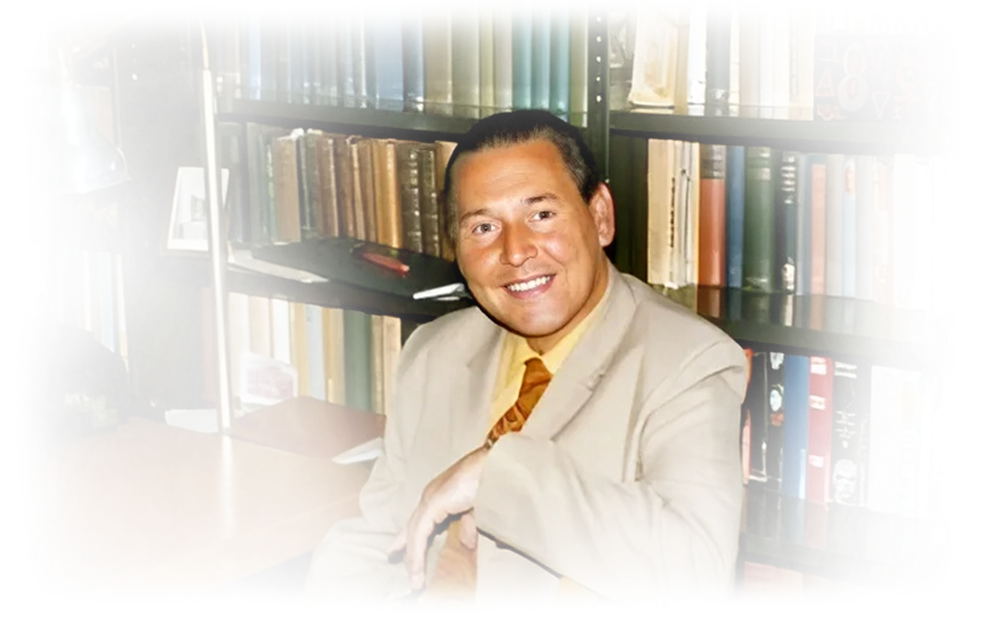
William Walker Atkinson
Occultist
William Walker Atkinson (December 5, 1862 – November 22, 1932) was a pioneering figure in the realms of New Thought philosophy, metaphysics, and personal development. Born in Baltimore, Maryland, Atkinson's life journey was characterized by a profound exploration of the human mind and spirit, seeking to unravel the mysteries of consciousness and unlock the secrets of personal empowerment.
Educated in the law, Atkinson embarked on a career as an attorney before delving into the depths of esoteric knowledge and spiritual wisdom. Drawing from a diverse array of influences, including Eastern mysticism, Hermeticism, and Theosophy, Atkinson emerged as a prolific writer and lecturer, captivating audiences with his insights into the power of thought, the laws of attraction, and the potential for personal transformation.
At the turn of the 20th century, Atkinson became a prominent advocate for the principles of New Thought, promoting the idea that individuals possess the ability to shape their destinies through the mastery of their own minds. His seminal works, including "The Secret of Mental Magic" and "Thought Vibration or the Law of Attraction in the Thought World," offered practical techniques for harnessing the creative power of the mind and manifesting one's desires.
Beyond his literary endeavors, Atkinson played a pivotal role in popularizing the teachings of the ancient Hermetic tradition, particularly through his influential book "The Kybalion," which explores the principles of Hermetic philosophy and their relevance to modern life.
Atkinson's enduring legacy lies in his dedication to empowering individuals to realize their full potential and live lives of purpose and abundance. His profound insights into the nature of consciousness and the dynamics of personal growth continue to inspire seekers of wisdom and enlightenment to this day, cementing his reputation as a visionary thinker whose teachings transcend the boundaries of time and space.
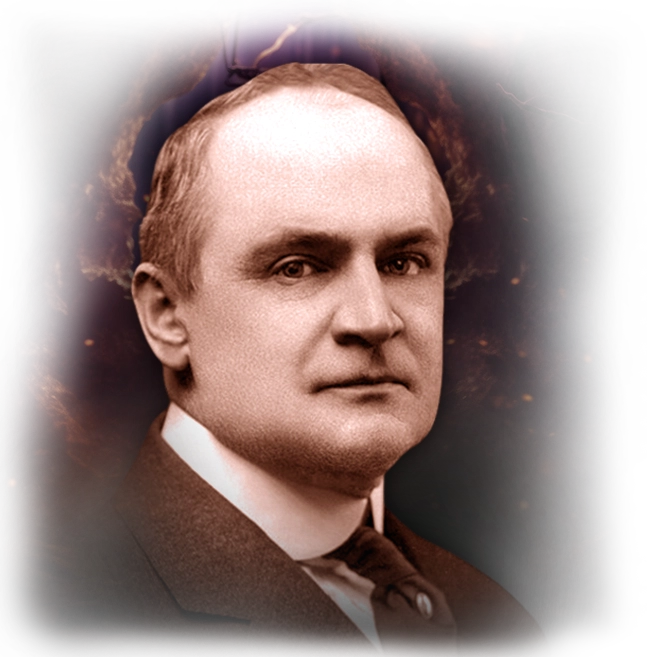
Israel Regardie
Occultist
Israel Regardie (born November 17, 1907) is a towering figure in the realms of Western esotericism and occultism, revered for his profound contributions to the study and practice of mystical traditions. Hailing from the East End of London, Regardie embarked on a lifelong journey of exploration into the hidden dimensions of consciousness and spirituality.
Trained in psychology, Regardie's early encounters with the works of Aleister Crowley sparked a fascination with the arcane arts, leading him to become Crowley's personal secretary and student during the 1920s. Under Crowley's tutelage, Regardie delved deeply into the realms of ceremonial magic, Qabalah, and alchemy, mastering ancient rituals and esoteric practices.
Following his departure from Crowley's inner circle, Regardie emigrated to the United States, where he continued to dedicate himself to the study and dissemination of occult wisdom. His seminal work, "The Tree of Life: A Study in Magic," stands as a cornerstone of modern occult literature, offering a comprehensive exploration of the Qabalistic tradition and its practical applications.
Regardie's enduring legacy lies not only in his scholarly writings but also in his role as a teacher and mentor to countless students of the esoteric arts. His profound understanding of mystical symbolism and ritual magic, coupled with his ability to articulate complex concepts with clarity and insight, has inspired generations of seekers on the path of spiritual enlightenment.
Beyond his scholarly pursuits, Regardie's advocacy for the integration of psychology and mysticism has had a profound impact on the contemporary understanding of consciousness and personal transformation. His belief in the inherent unity of the spiritual and psychological dimensions of human experience continues to resonate with those who seek to unlock the mysteries of the inner self.
In essence, Israel Regardie stands as a luminary in the realm of Western esotericism, whose pioneering efforts have enriched the spiritual lives of countless individuals and paved the way for a deeper understanding of the mystical traditions that lie at the heart of human existence.
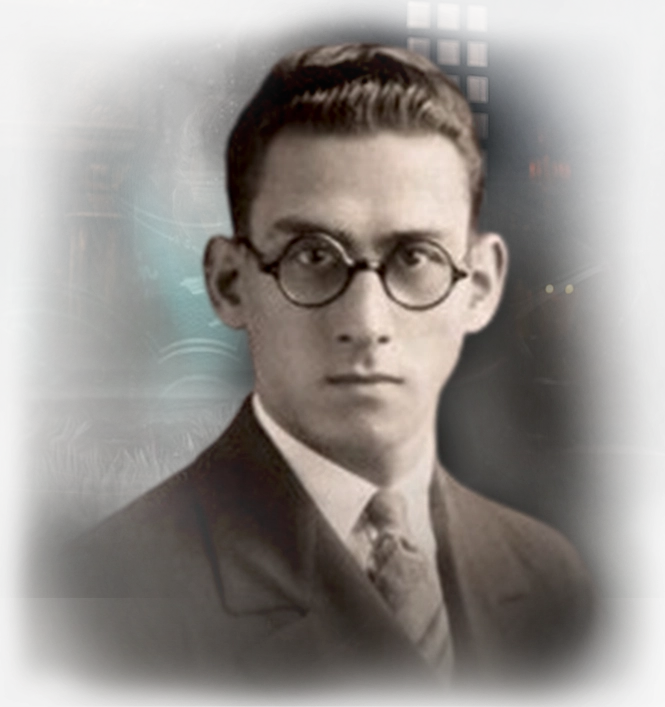
Edward Waite
Occultist
Edward Waite (born August 15, 1975) is a prominent figure in the realm of contemporary literature, celebrated for his innovative contributions to the world of fiction and non-fiction alike. Hailing from London, England, Waite's literary journey has been characterized by a profound exploration of human experiences and societal intricacies.
Educated at Oxford University and later at the prestigious Iowa Writers' Workshop, Waite emerged as a trailblazer in the literary landscape during the late 20th and early 21st centuries. His works span a diverse range of genres, from gripping thrillers to poignant memoirs, each imbued with a distinct voice and a keen sense of narrative craftsmanship.
Central to Waite's literary philosophy is a deep-seated curiosity about the human condition and a commitment to excavating the complexities of existence through the art of storytelling. Whether delving into the depths of psychological suspense or shedding light on pressing social issues, Waite's writing resonates with readers across the globe, inviting them to contemplate the intricacies of life and the nuances of human emotion.
Beyond his contributions to literature, Waite's impact extends to the realms of academia and popular culture, as his thought-provoking narratives and insightful commentary have sparked conversations and inspired readers to reflect on their own lives and the world around them. With his unwavering dedication to the craft of writing and his ability to craft compelling narratives that captivate and challenge, Edward Waite stands as a luminary in the world of contemporary literature, whose influence will continue to shape the literary landscape for years to come.
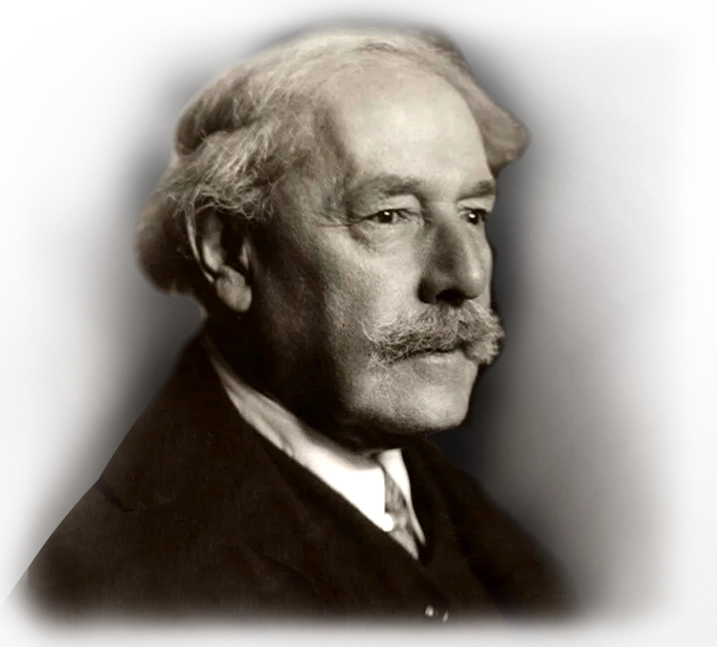
Paul Foster Case
Occultist
Paul Foster Case (October 3, 1884 – March 2, 1954) is a significant figure in the realm of esotericism and mystical philosophy, celebrated for his profound contributions to spiritual understanding in the 20th century. Born in Fairport, New York, Case devoted his life to unraveling the mysteries of existence and delving into the depths of human consciousness.
From his early years, Case embarked on a quest for spiritual exploration, immersing himself in various mystical traditions such as Western esotericism, Hermeticism, and Tarot teachings. His relentless pursuit of knowledge led him to prominence within the Rosicrucian Order, where he emerged as a respected author, lecturer, and teacher.
Drawing inspiration from the rich heritage of the Western Mystery Tradition and the teachings of influential figures like Eliphas Levi and the Hermetic Order of the Golden Dawn, Case crafted a unique synthesis of esoteric wisdom, enriched by modern psychological insights. His seminal work, "The Tarot: A Key to the Wisdom of the Ages," remains a cornerstone of Tarot studies, offering profound insights into the symbolic language of Tarot cards and their relevance to the spiritual journey of humanity.
At the heart of Case's teachings lay the concept of spiritual alchemy, wherein individuals undergo a transformative inner journey to transcend egoic limitations and attain higher states of consciousness. His influence continues to inspire truth-seekers, serving as a guiding light on the journey toward self-realization and spiritual enlightenment.
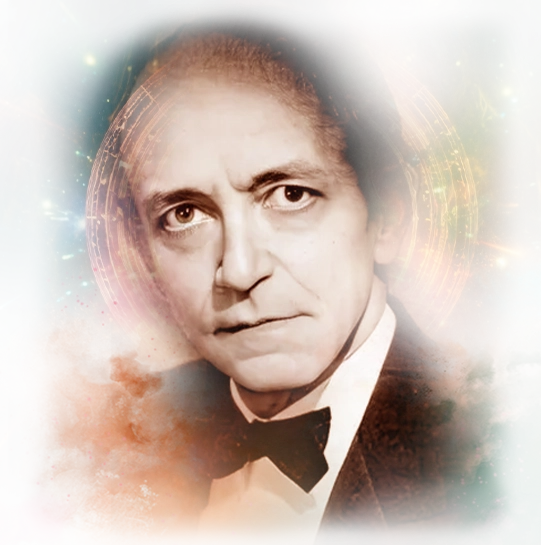
Richard Tarnas
Astrologer
Richard Tarnas (born February 21, 1950) is a contemporary philosopher, cultural historian, and author whose work has made significant contributions to the fields of psychology, philosophy, and the humanities. Born in Geneva, Switzerland, and raised in the United States, Tarnas brings a unique blend of cross-disciplinary insight to his explorations of the human psyche and its relationship to the cosmos.
Educated at Harvard University and the Saybrook Institute, Tarnas' intellectual journey has been characterized by a deep engagement with the rich tapestry of Western thought, from ancient philosophy to modern psychology. His seminal work, "The Passion of the Western Mind," offers a sweeping survey of Western intellectual history, tracing the evolution of ideas from ancient Greece to the present day. Through his meticulous scholarship and profound insights, Tarnas illuminates the interconnectedness of human consciousness and the broader currents of cultural evolution.
Central to Tarnas' philosophy is the notion of archetypal patterns and their influence on individual and collective human experience. Drawing upon the insights of depth psychology and the archetypal psychology of Carl Jung, Tarnas explores the ways in which mythic themes and symbols shape our understanding of ourselves and the world around us. His groundbreaking work in archetypal astrology, as presented in "Cosmos and Psyche," offers a compelling vision of the cosmos as a living, dynamic reality, intimately intertwined with the human psyche.
Through his writings and teachings, Tarnas invites us to reconsider our place within the grand tapestry of existence, encouraging us to explore the depths of our own consciousness and to engage with the timeless wisdom of the ages. In an age marked by uncertainty and rapid change, Tarnas' insights into the enduring patterns of human experience offer a beacon of wisdom and hope, guiding us toward a deeper understanding of ourselves and the cosmos in which we dwell.
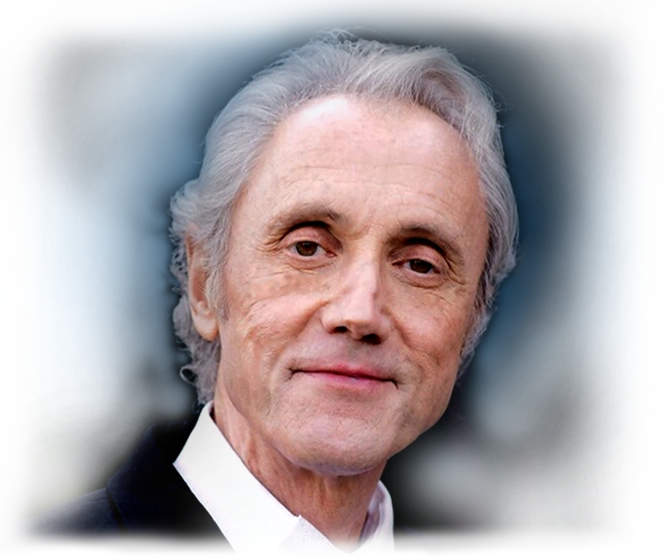
Keiron Le Grice
Astrologer
Keiron Le Grice is a prominent luminary in the fields of depth psychology, archetypal astrology, and the study of the intricate relationship between human consciousness and the cosmic realm. His intellectual odyssey is distinguished by a profound inquisitiveness regarding the interconnectedness of human existence and the universal order.
As a foremost authority in depth psychology, Le Grice draws extensively from the esteemed traditions of luminaries such as Carl Jung and Joseph Campbell. His scholarly endeavors delve deep into the recesses of the human psyche, probing the archetypal motifs and universal symbols that mold both our individual and collective unconscious.
At the heart of Le Grice's academic pursuits lies a recognition of the profound sway that celestial phenomena hold over human thought and behavior. Through meticulous research and erudite prose, he sheds light on the intricate interplay between planetary configurations, timeless mythic narratives, and the unfolding tapestry of human fate, offering profound insights into the enigmas of existence.
Outside the confines of academia, Le Grice's captivating oratory and intellectually stimulating publications have enraptured audiences, spurring them to embark on profound voyages into the essence of the human condition and our cosmic station. His steadfast dedication to bridging ancient wisdom with contemporary psychological theory, coupled with his unparalleled ability to convey intricate concepts with lucidity and perspicacity, positions him as a visionary thinker whose enduring influence will shape our understanding of the human experience for generations to come.
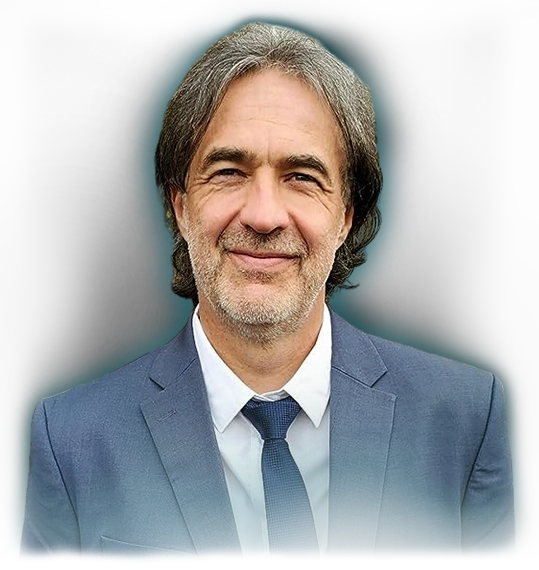
Chris Brennan
Astrologer
Chris Brennan commands a prominent position within the domain of astrology and its scholarly exploration. His journey mirrors that of a dedicated explorer, propelled by an unyielding thirst for uncovering the enigmas of the cosmos.
Brennan's expertise in astrology is the culmination of extensive study, spanning its historical origins, theoretical frameworks, and practical applications. Through meticulous research, he has ascended to a pinnacle of authority in the field, offering pivotal insights that seamlessly merge the ancient wisdom of astrology with contemporary scientific methodologies.
At the heart of Brennan's methodology lies a steadfast commitment to propelling astrology forward through scholarly rigor and empirical scrutiny. His multifaceted body of work traverses a breadth of subjects, from traditional methodologies and prognostic techniques to the nuanced interplay between astrology and allied disciplines such as psychology, sociology, and anthropology.
In addition to his scholarly pursuits, Brennan is revered for his captivating lectures, profound writings, and innovative pedagogical approaches, which have galvanized a new generation of astrologers and enthusiasts. His unwavering dedication to demystifying astrology and fostering a deeper comprehension of its tenets has earned him widespread acclaim and admiration within the astrological community and beyond.
As a visionary thinker and ardent proponent of astrology's transformative potential, Chris Brennan persistently challenges the boundaries of our cosmological understanding, leaving an indelible imprint on the field and steering its evolution for the foreseeable future.

Liz Greene
Astrologer
Liz Greene (born 1946) is a renowned British astrologer, psychologist, and author whose work has profoundly shaped modern psychological astrology. Trained in Jungian depth psychology and a practicing astrologer for decades, Greene integrates myth, archetypes, and depth psychology into astrological interpretation.
Her seminal book Saturn: A New Look at an Old Devil redefined traditional astrological perspectives on Saturn, presenting it as a planet of growth through challenge rather than purely restriction. Greene went on to author numerous works, including The Astrology of Fate and The Dark of the Soul, blending mythology, psychology, and astrology.
A co-founder of the Centre for Psychological Astrology in London, Greene has been a leading figure in training astrologers to use astrology as a tool for self-understanding and individuation. Her integration of Jungian concepts with astrological symbolism has made her a central figure in the development of archetypal and humanistic astrology.
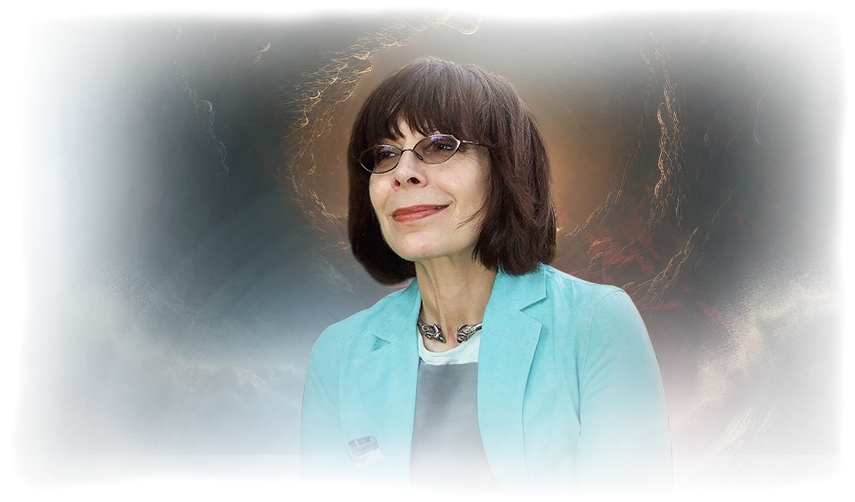
Demetra George
Astrologer
Demetra George (born 1946) is a pioneering astrologer, author, and scholar whose work bridges the ancient and the modern traditions of astrology. She is particularly known for her groundbreaking research into the asteroids and for reviving the study of traditional Hellenistic astrology.
Her influential book Asteroid Goddesses introduced the psychological and mythological significance of asteroids such as Ceres, Pallas, Juno, and Vesta, reshaping contemporary astrological practice. Later, she authored Astrology and the Authentic Self and Ancient Astrology in Theory and Practice, which integrate traditional techniques with modern perspectives.
George has played a crucial role in restoring the lineage of ancient astrology, drawing from Greek, Roman, and Babylonian sources, while also pioneering ways to apply these insights to modern psychological and spiritual life. As a teacher and writer, she continues to inspire generations of astrologers, offering a bridge between the wisdom of antiquity and the needs of the present.
